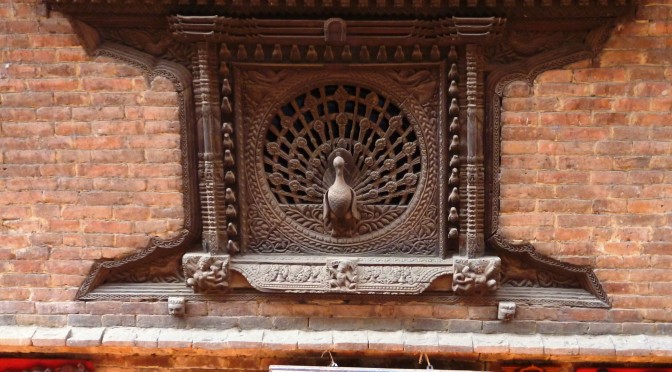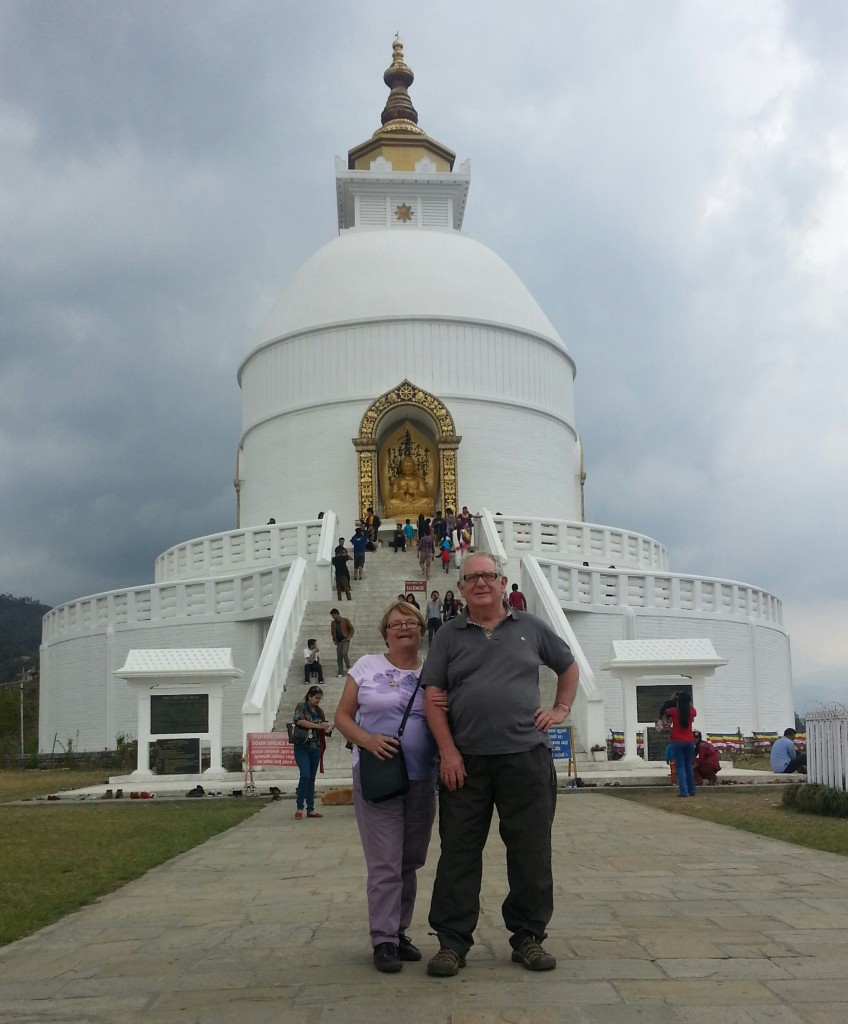
If you just want the complete photo archive there is a link to the album at the end.
The post includes some photos most relevant to the text also, rather than fill the post with a host of details, I have inserted links to the relevant websites for the hotels and all the major attractions we visited. There are also some reviews on tripadvisor. Read on, or skip to the photo link!
My 70th birthday holiday was planned to fulfill two aim: the first to visit the homeland of the Gurkhas, with whom I served in Borneo in ’65/’66, and their Museum in Pokhara and, secondly, to go paragliding from Sarangkot. We abandoned a guided tour option and decided to to see how things would pan out flying to Kathmandu for a few days and then on to Pokhara and finally back to Kathmandu.
We flew Turkish Airlines from Dublin, via Istanbul and I would recommend them for service and efficiency. We arrived at 6.15 a.m. but it was nearly two hours clearing passport control and immigration.
Getting your visa is wild – Make sure you have two passport photos (there is a guy there who will take them on the spot – at a price), the right fee (preferably in US dollars) and are in the right queue for the period that you intend to stay in Nepal. Any deviation will mean joining another seemingly interminable line of travelers!
Having finally negotiated the carousel we were accosted by a taxi agent who, having commandeered a car, escorted us to the hotel, keeping up a barrage of information and insisting that he could arrange our whole stay in Nepal. Having arrived at the hotel, the Tibet International, we told him to come back that evening with a proposal.
Of course it being early morning we were unable to get a room and the manager suggested we visit the Boudhanath near the hotel, First though we visited the roof top restaurant for breakfast.
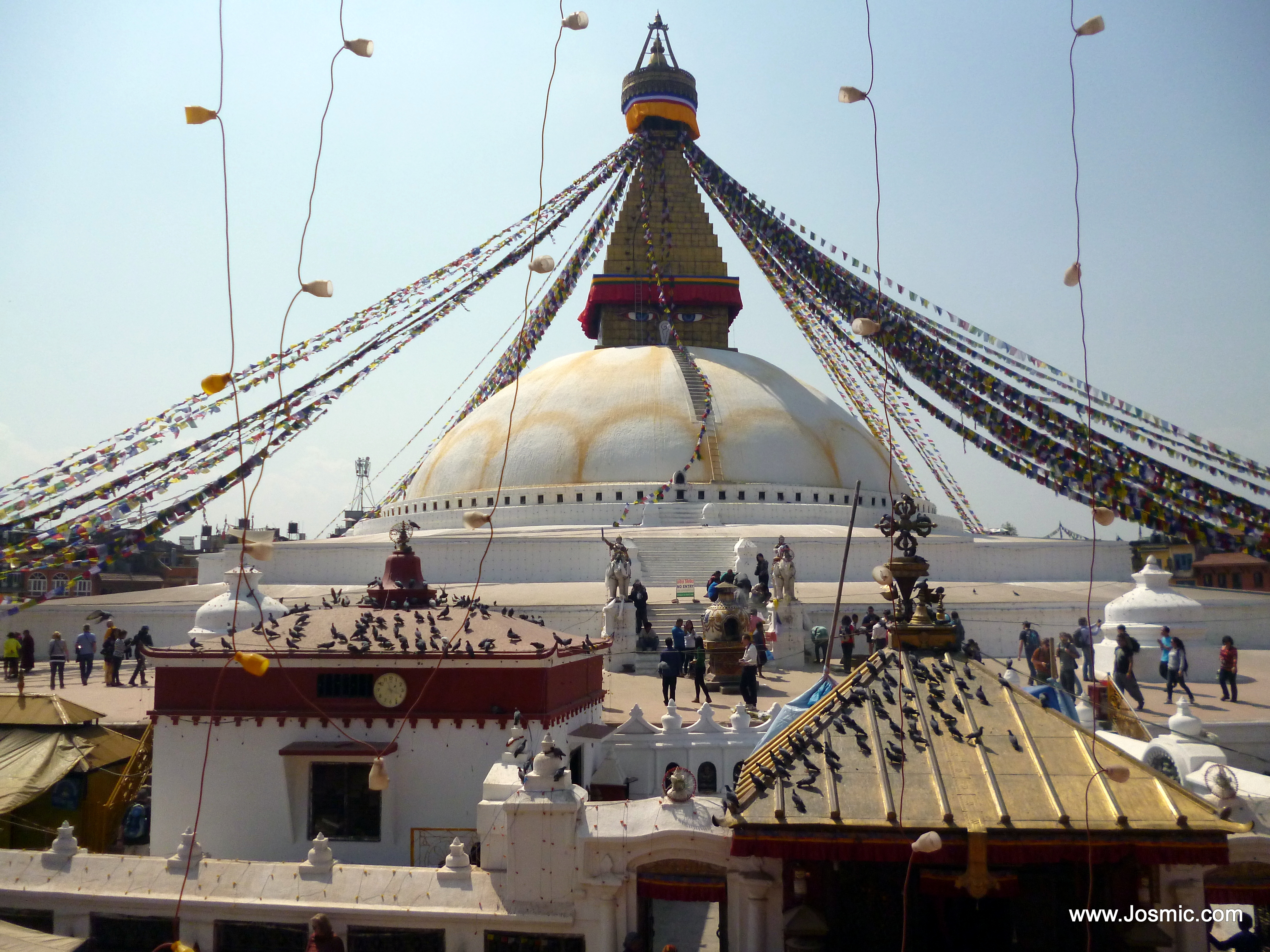
Our friendly tour guy returned in the evening with his boss Dinesh and we were driven to Thamel, the tourist hub of Kathmandu, to their offices, Osho VisionTrecks. Dinesh went through the various options and we finally agreed a programme for the whole of our stay including taxi excursions each day to the many historic sites, flight to view Everest, air transfers to and from Pokhara, paragliding from Sarangkot and final transfer back to Kathmandu international at the end – all in £800. It proved to be money very well spent.
Driving around the Kathmandu valley is like being conducted through a building site. With a few exceptions there doesn’t seem to be more than 500 metres of paved road before it becomes a bone rattling cart track and there are buildings in various states of renovation everywhere.
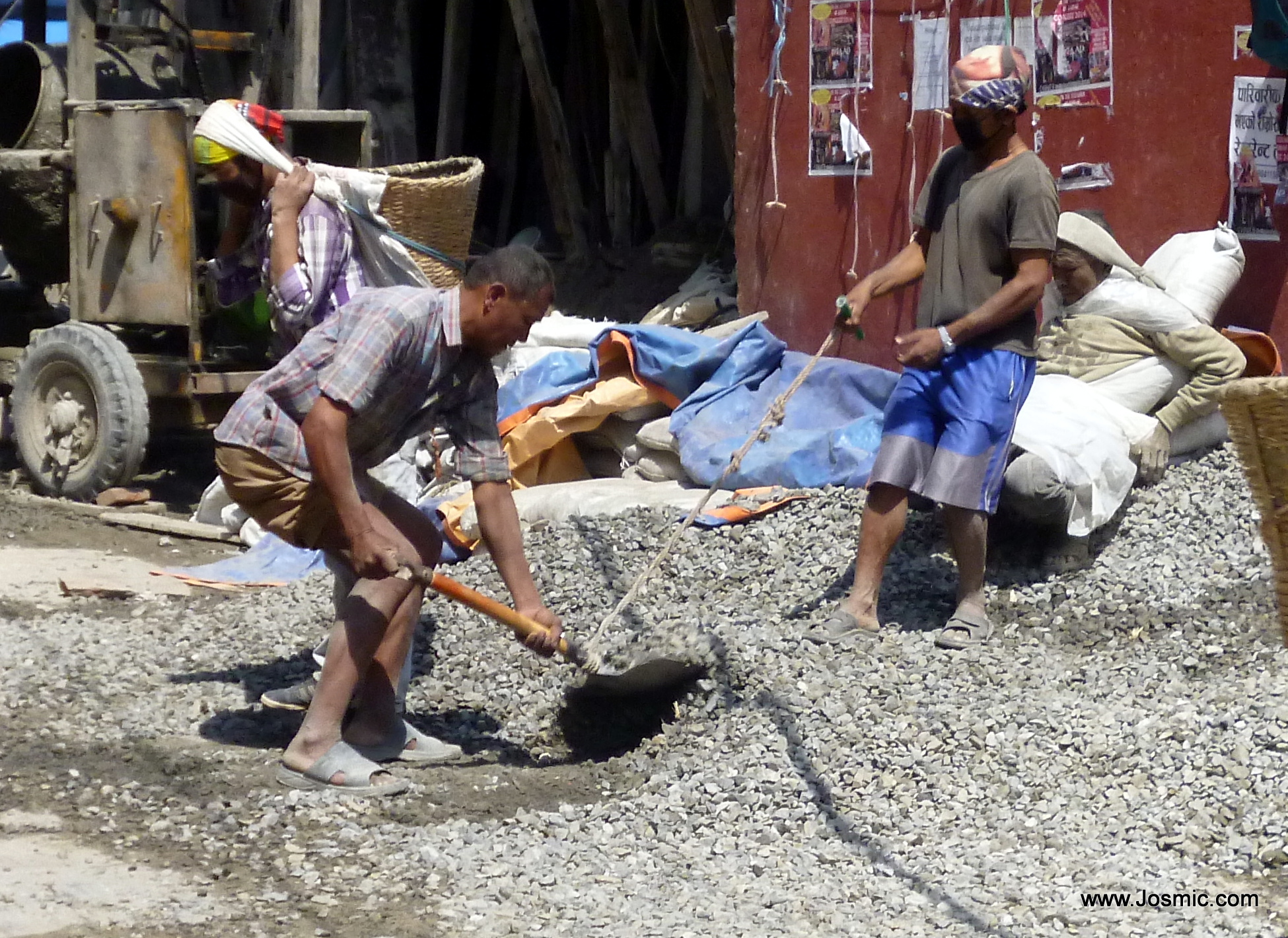
Our second day started at the World Heritage Site of Pashupatinath a Temple complex dedicated to the Hindu God Shiva and the venue for Hindu cremations which are conducted on a 24 hour, seven day week basis.
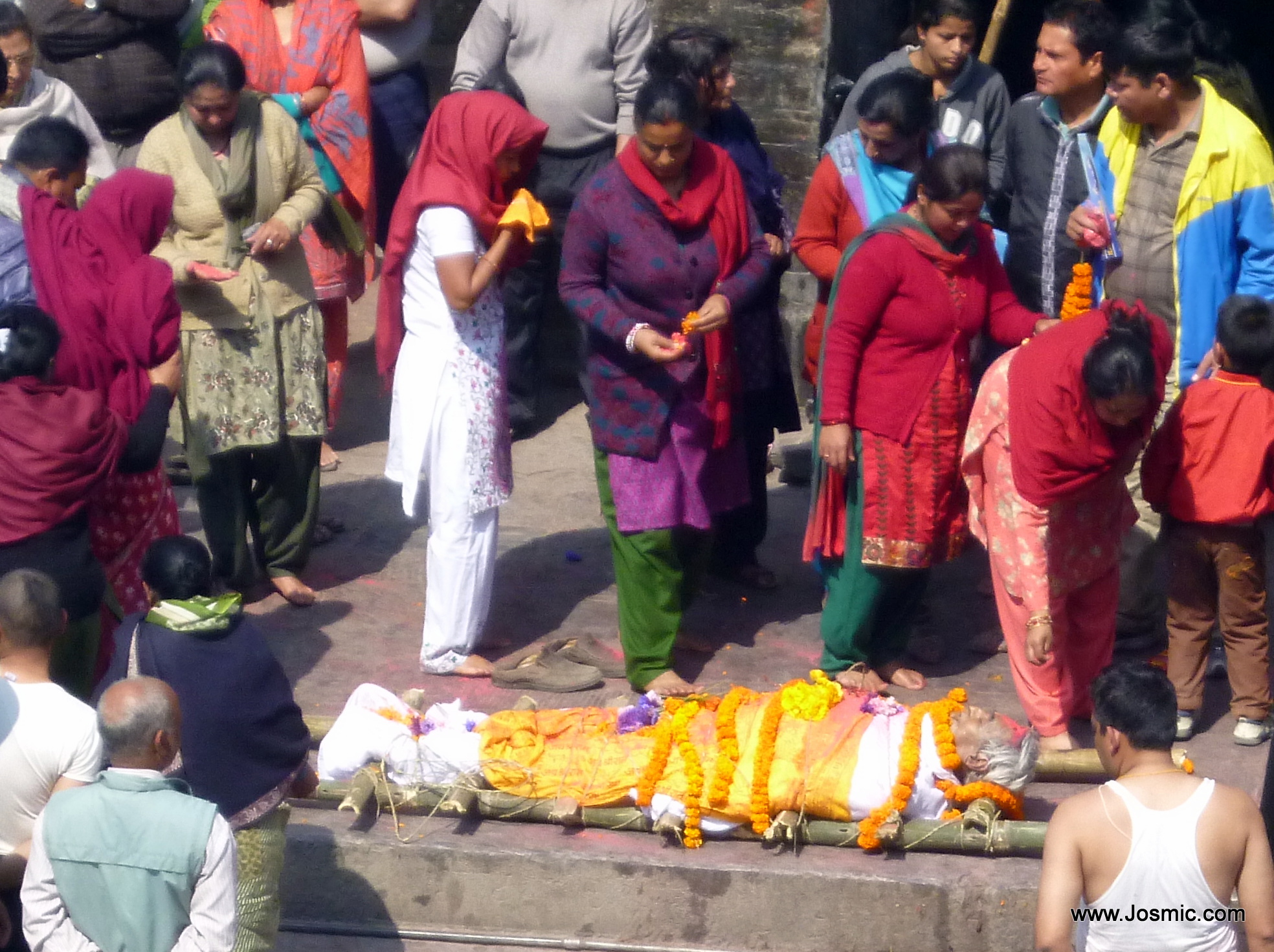
We spent some time touring the complex with the help of an unofficial guide who insisted that she was “just talking to us”. Only licensed guides are officially allowed on the site. The tour included visiting the old peoples home where some local dancers were entertaining the residents.
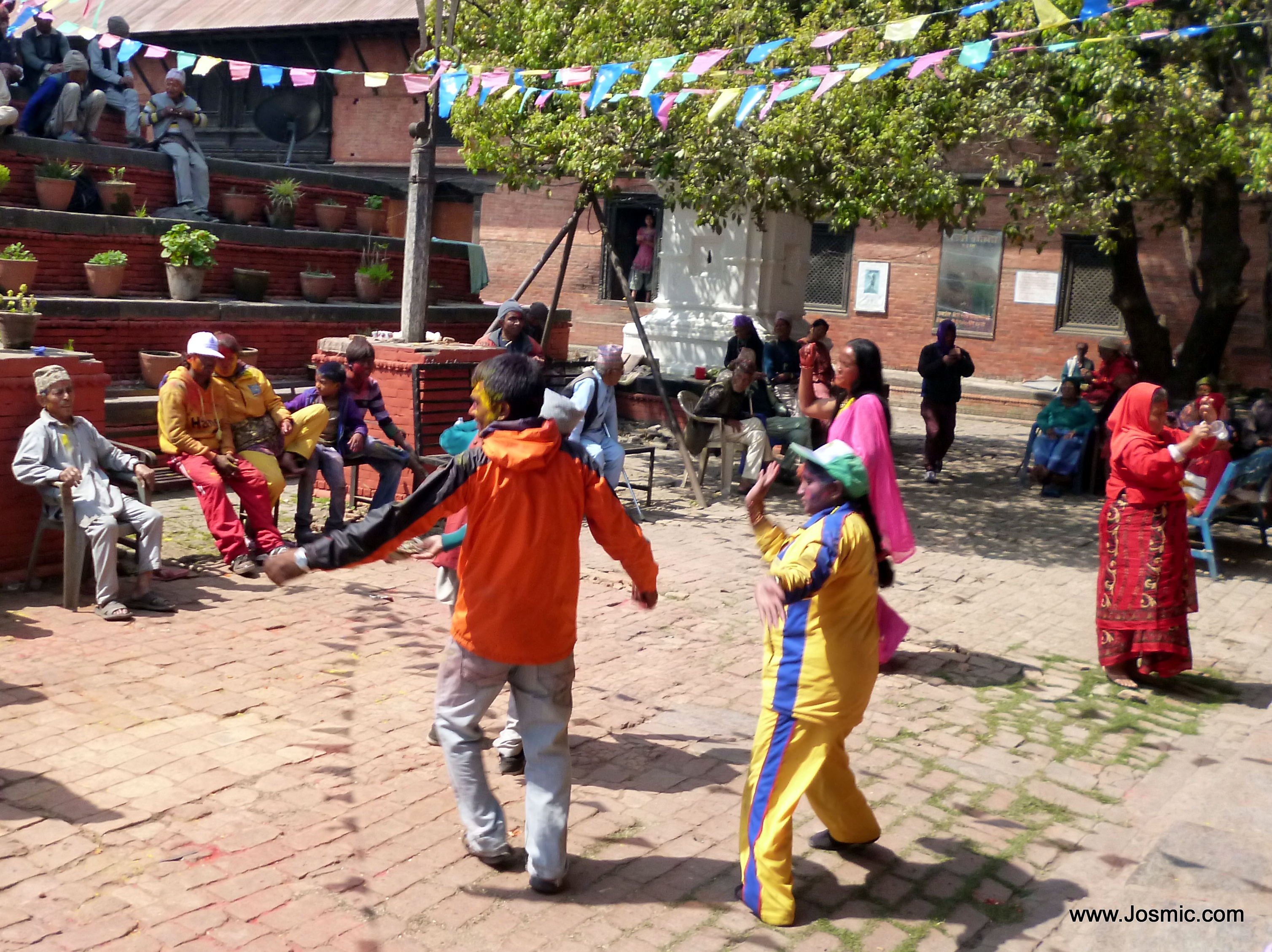
From here we moved on to Rudravarna Mahavihar, one of the oldest monasteries in Patan (Official name Lalitpur), the city of fine arts, and one of the three Royal Cities in Nepal. Reputedly over 1500 years old It was one of the most striking of the many buildings in Patan.
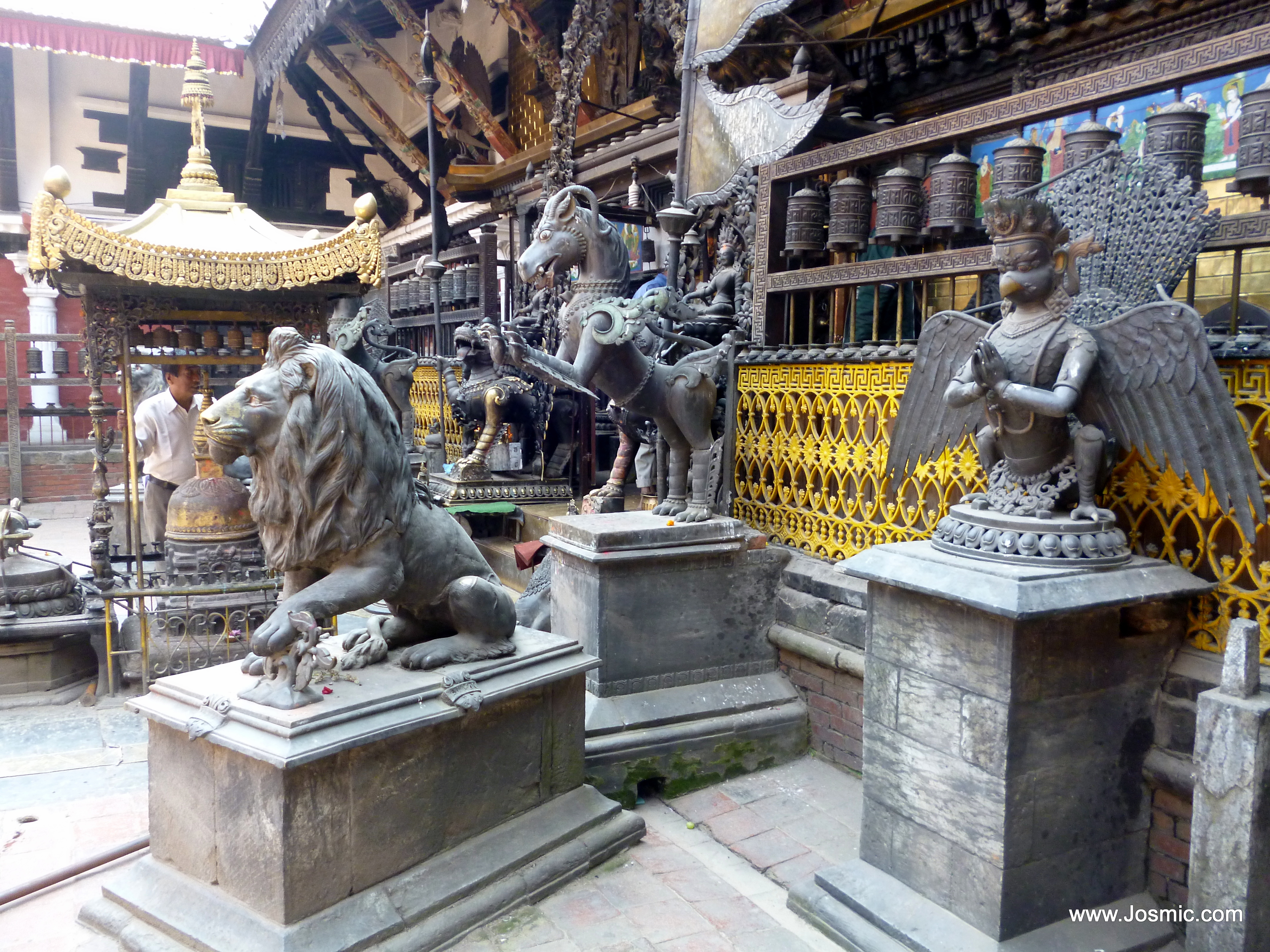
Just round the corner from this is a terracotta temple dating from 1585, the Mahabouddha, which has thousands of images of Buddha engraved into its surface. It was rebuilt in 1934 after being ruined in an earthquake but there were no original plans and there were enough bricks left over to build a small shrine to Maya Devi, Buddha’s mother.
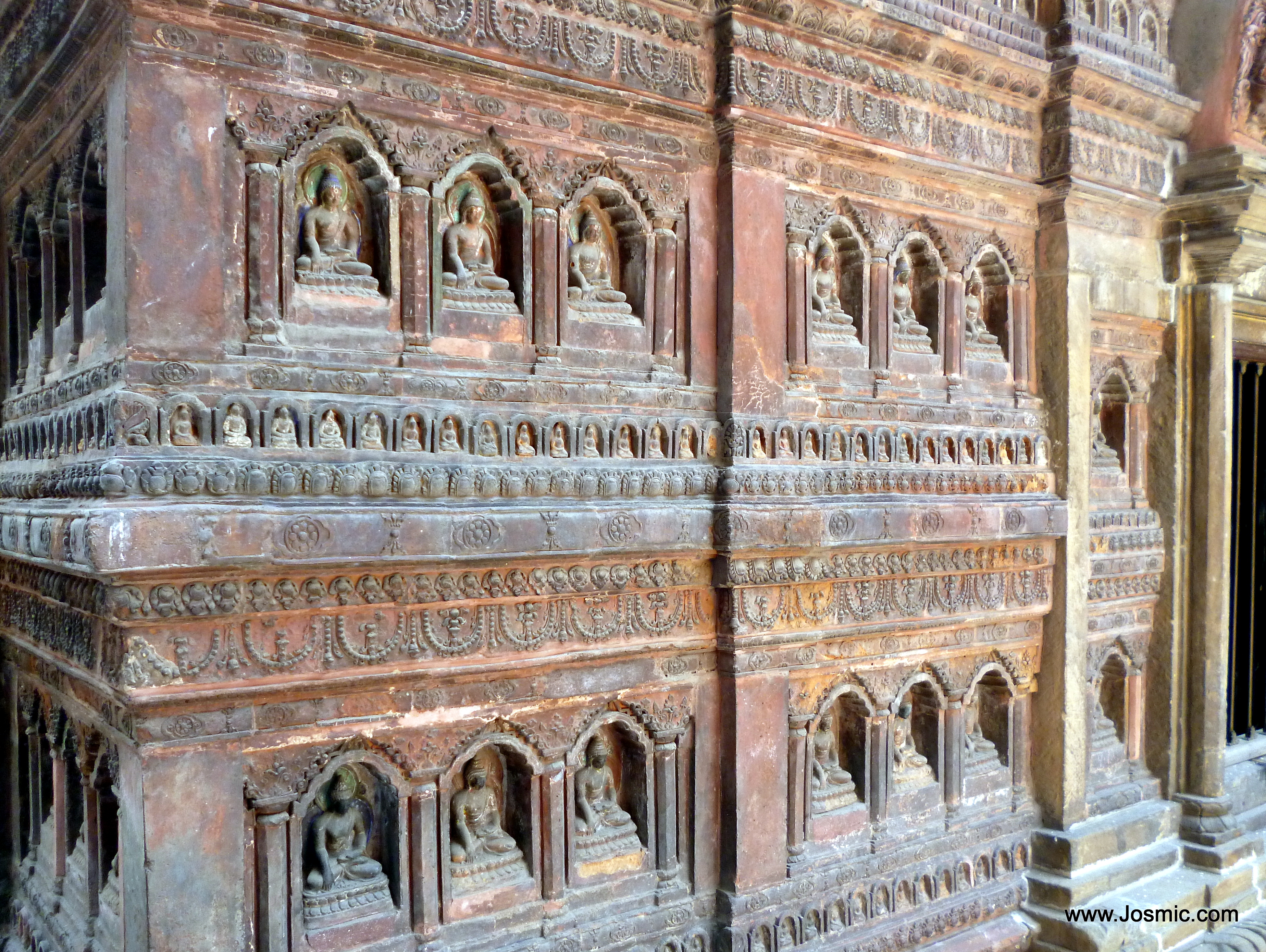
From here it is a short journey to Patan Durbar Square, the hub of the city, full of ancient shrines, temples and monuments as well as the many local shops. We stopped for lunch at a local restaurant overlooking the entrance to the square and then acquired ourselves one of the official guides to take us round.
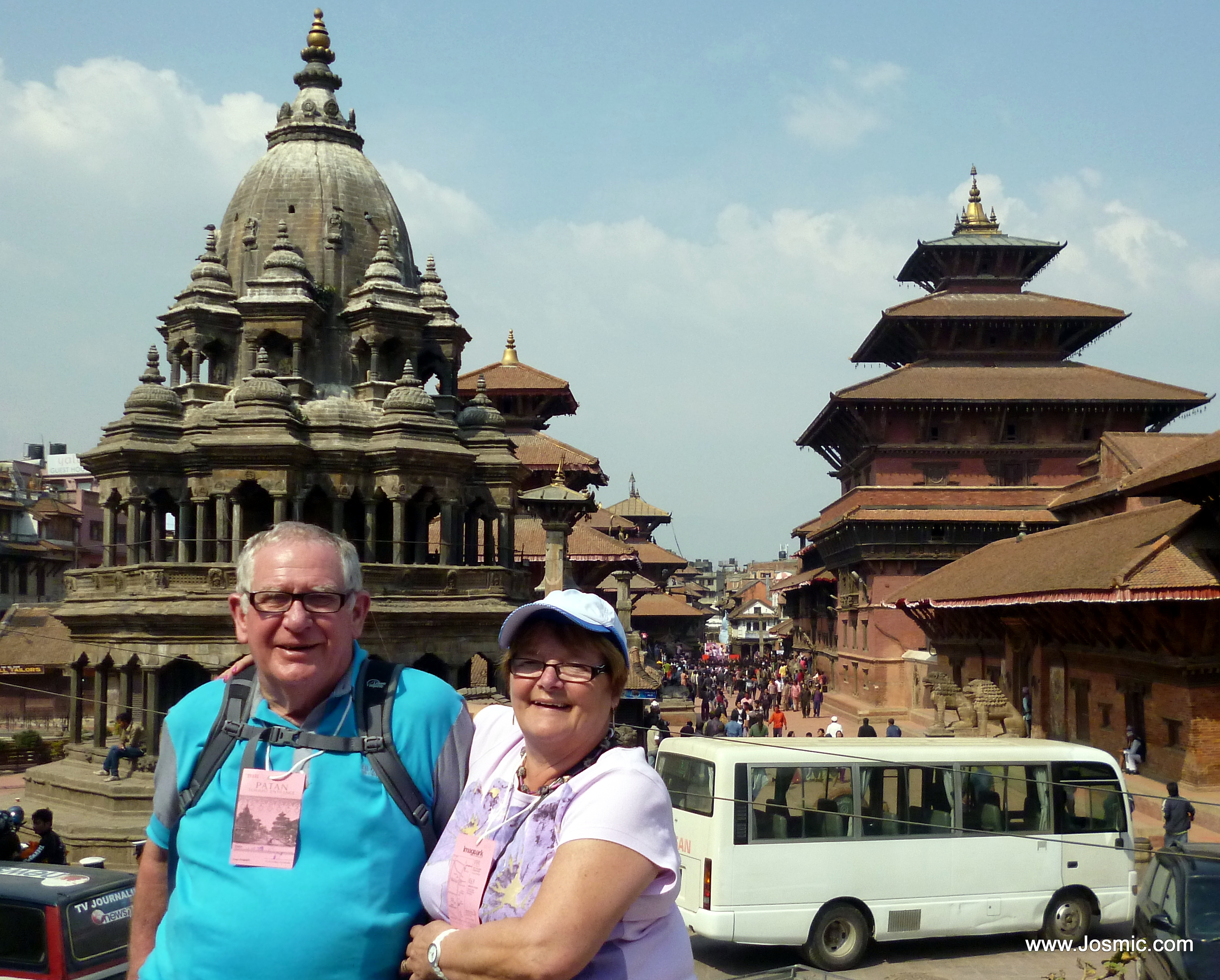
This was the last stop of the day and we returned to the hotel for dinner and a well earned rest.
The next morning we were collected at 6.30 a.m. for the short journey to the domestic airport for our excursion on the “Mountain Flyer”, an 19 seat Beechcraft 1900C, the flight along the Himalaya to view Everest from a unique angle. A really wonderful experience and for Josephine possibly the highlight of the whole trip.
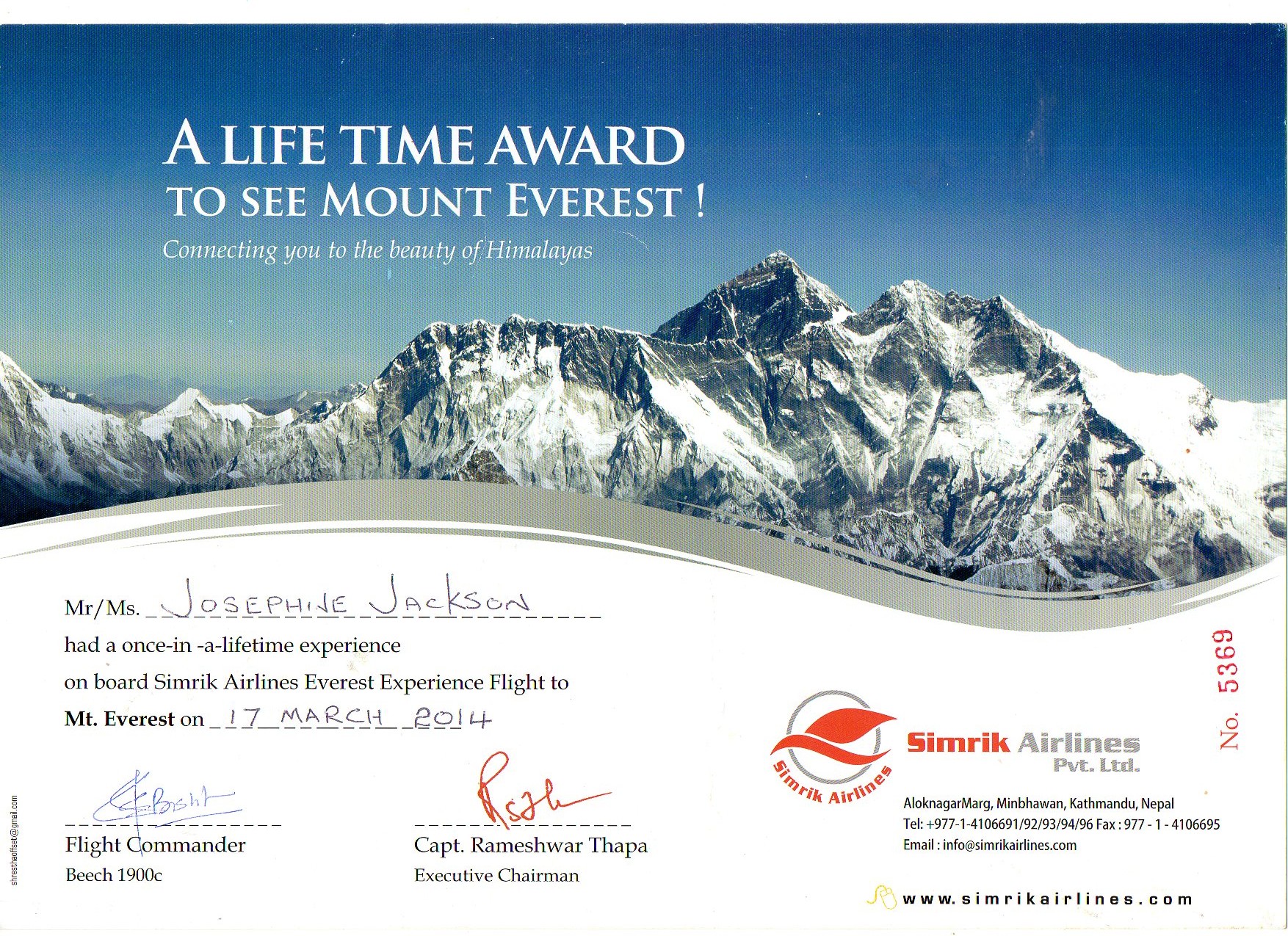
After this experience we returned to the hotel for breakfast and a couple of hours recuperation and the we were off again to visit the Narayanhiti Palace Museum. It wasn’t until we were almost at the end that we discovered that, in 2001, the whole of the Nepalese royal family were murdered by the heir apparent after a family dispute. No photography is allowed in this modern relic of Nepalese politics.
From here we moved on to see the Buddha Park, a haven of peace,
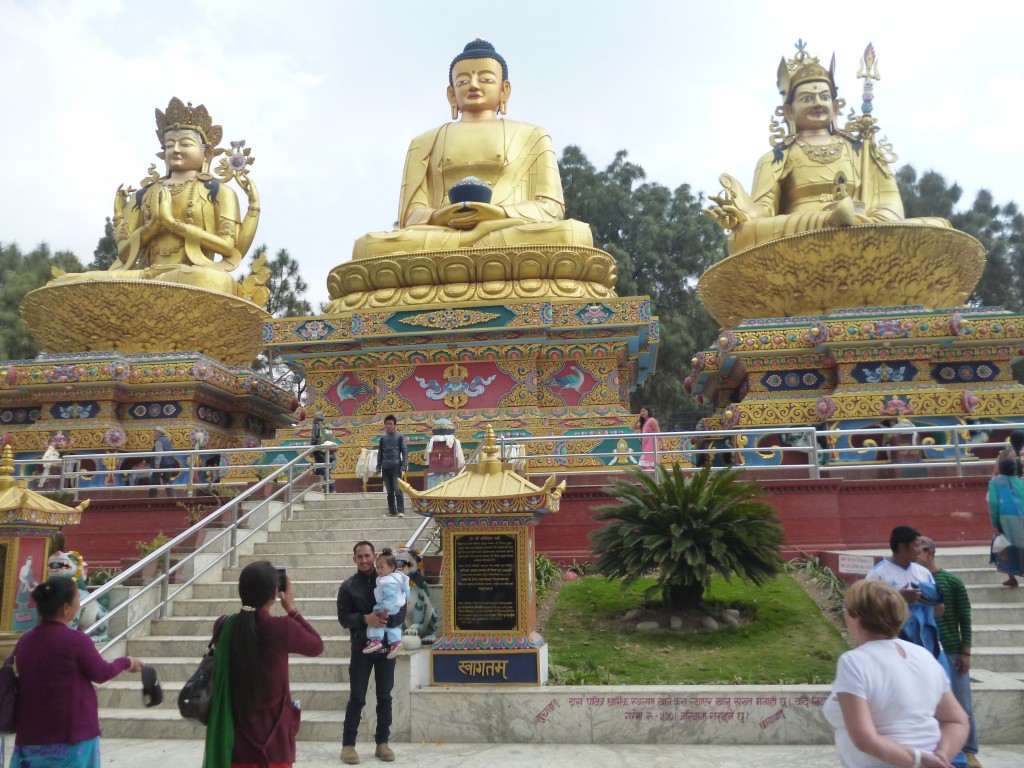
before moving on to the “Monkey Temple” or Swayambhunath, a hilltop complex which, as you may gather from the name, is alive with holy monkeys. Do not attempt to eat ice cream anywhere in their vicinity as you will have it snatched from your hand as soon as you are distracted.
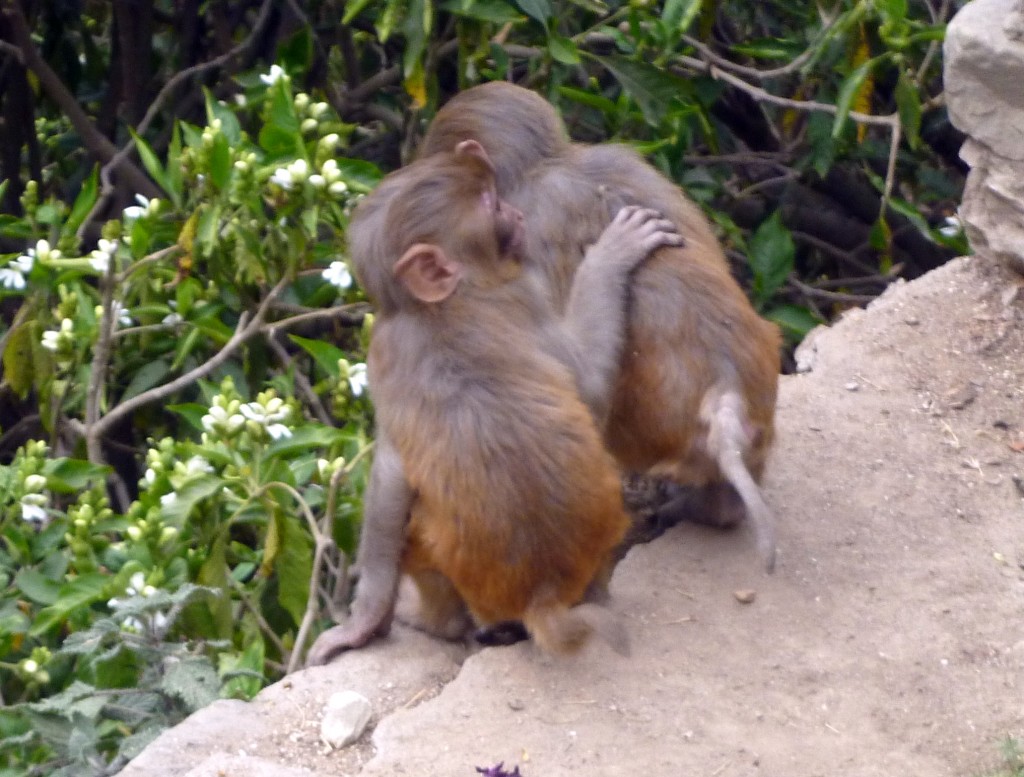
Of course being a temple there are a lot of steps, 365 to be exact, to negotiate! Apart from the central Stupa there are many smaller ones, the Herati Devi being dedicated to the goddess of smallpox and epidemics!
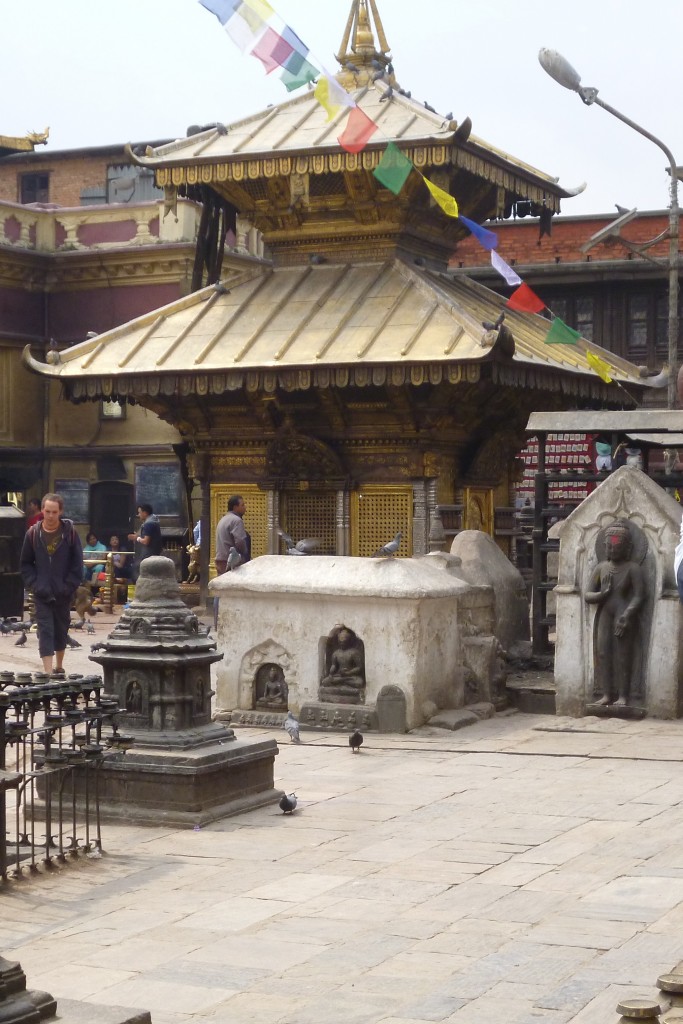
We took a late lunch and returned to the hotel to recuperate.
Next morning, my birthday, started with the staff at breakfast presenting me with a cake and ritual white scarf. Today was booked for Bhaktapur, about 15 kilometers from Kathmandu. It is the largest of the Newa towns and was capital of Nepal during the latter half of the 15th century ,
The drive to get there was somewhat interesting as, apparently the direct route was closed so we had to make a detour
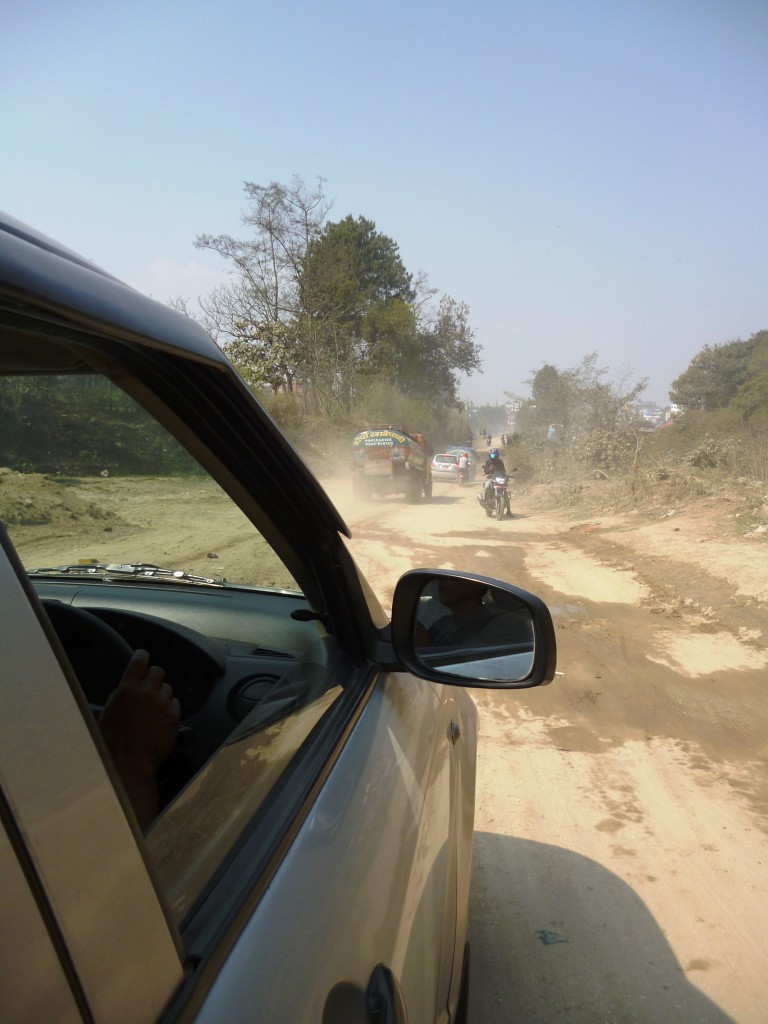
Our taxi driver had organised his younger brother, a registered tourist guide, to escort us. He was not only knowledgeable but spoke perfect English which mad the whole experience more enjoyable.
Bhaktapur is similar to Patan but on a much larger scale and it was as much the people,
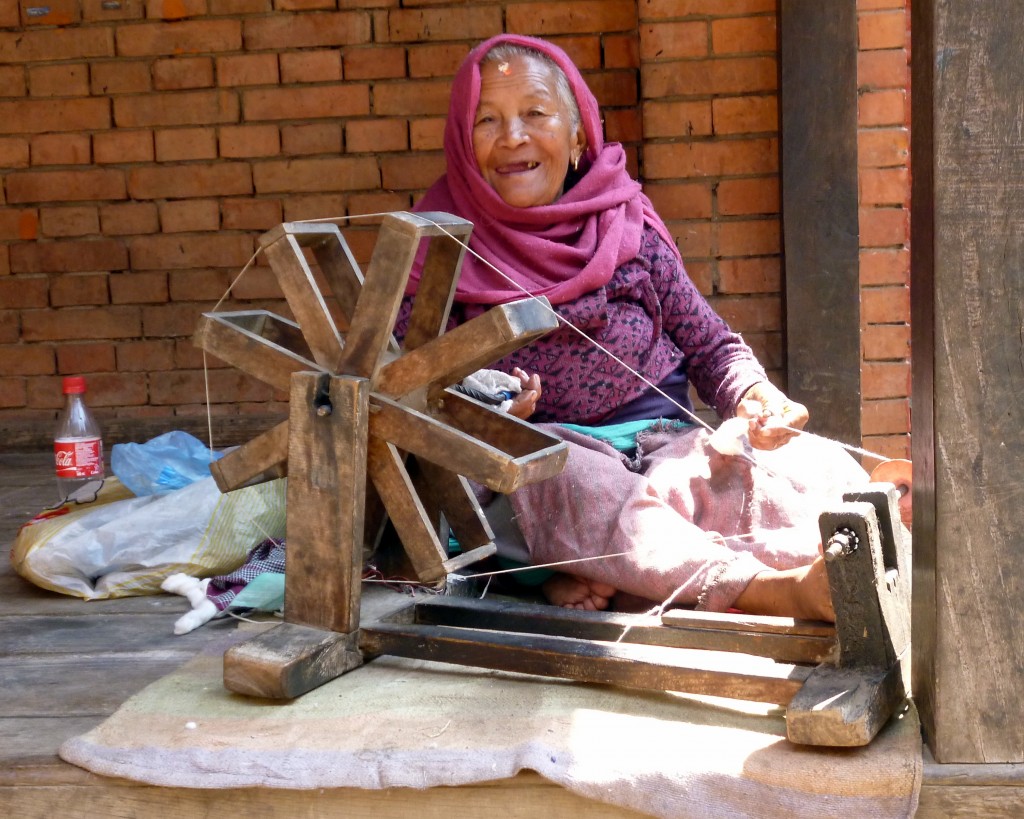
local businesses
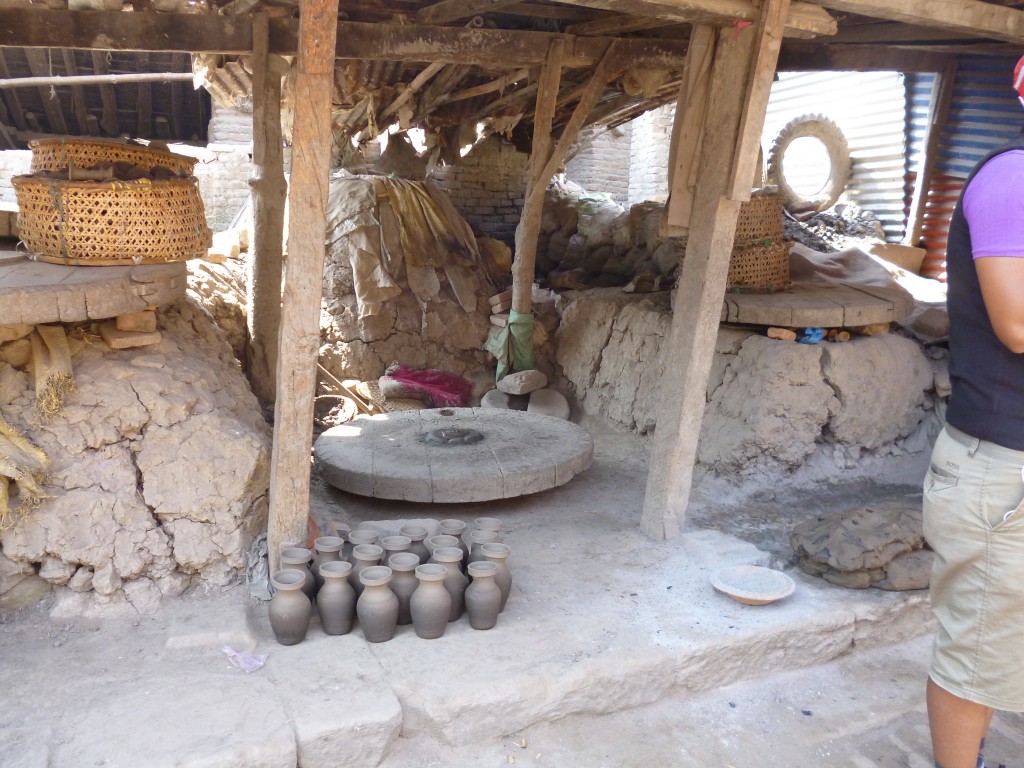
and shops
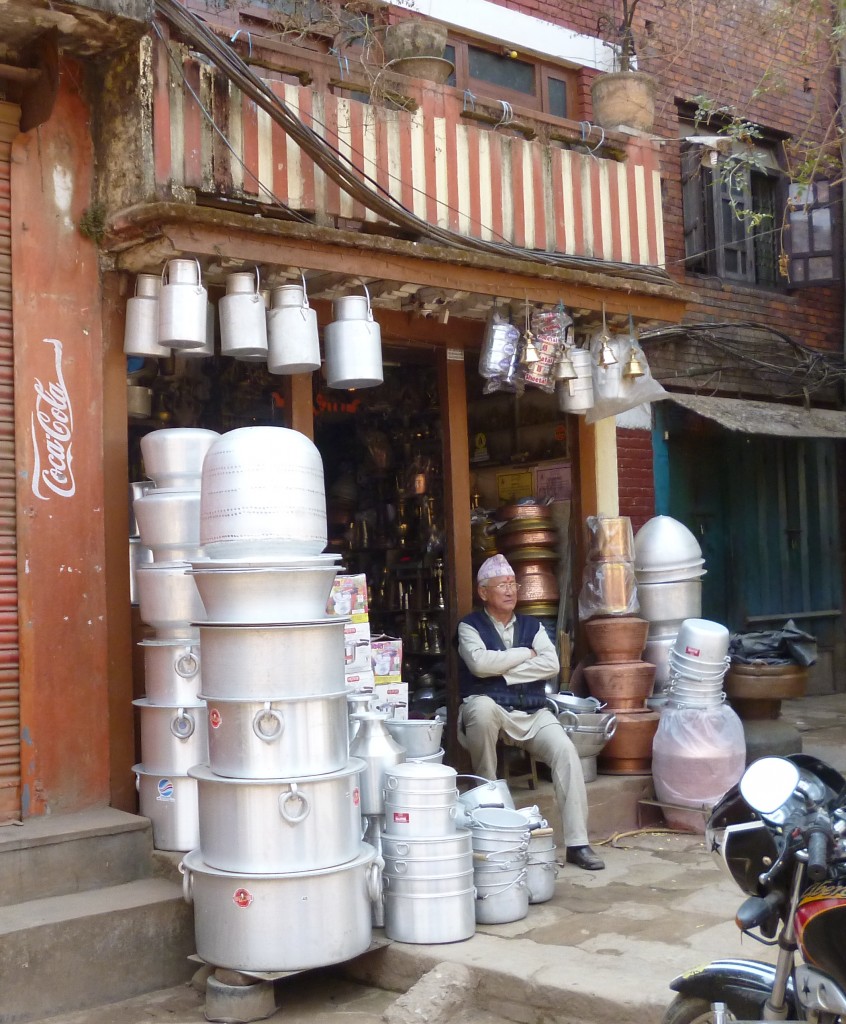
that provided some of the most memorable experiences.
Water is still drawn form wells.
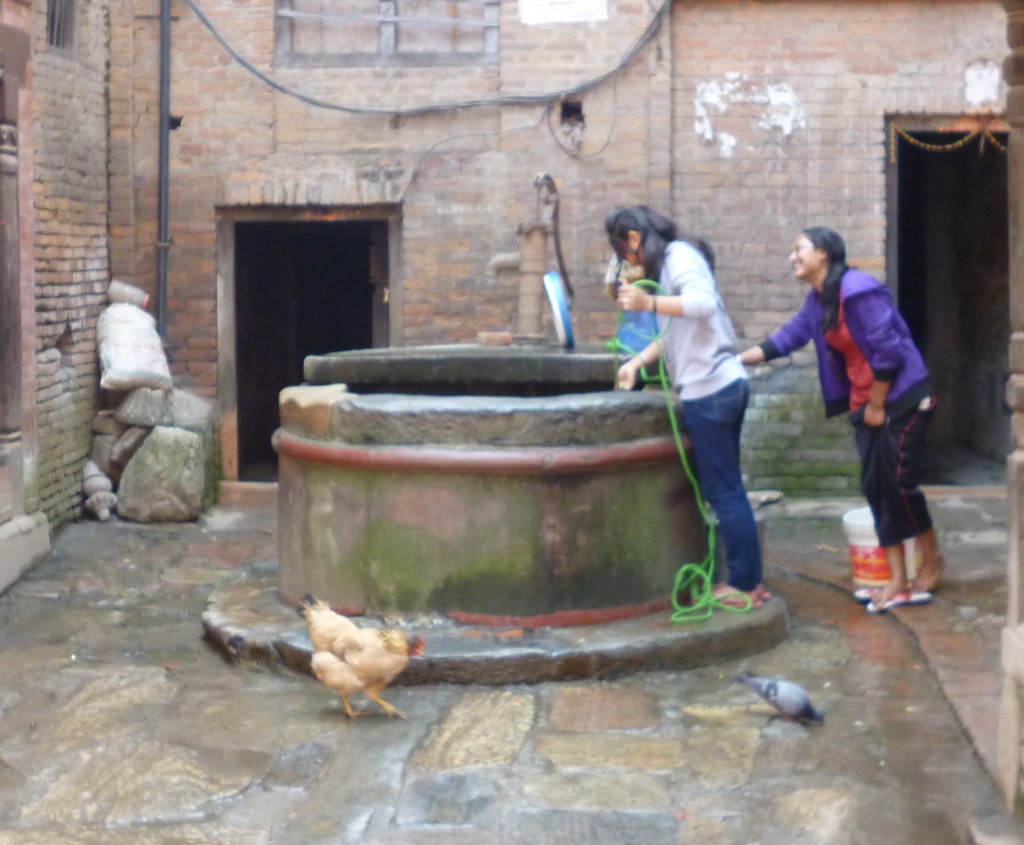
Animals are still sacrificed to the Hindu Gods in Nepal and entrails may be hung on the temple.
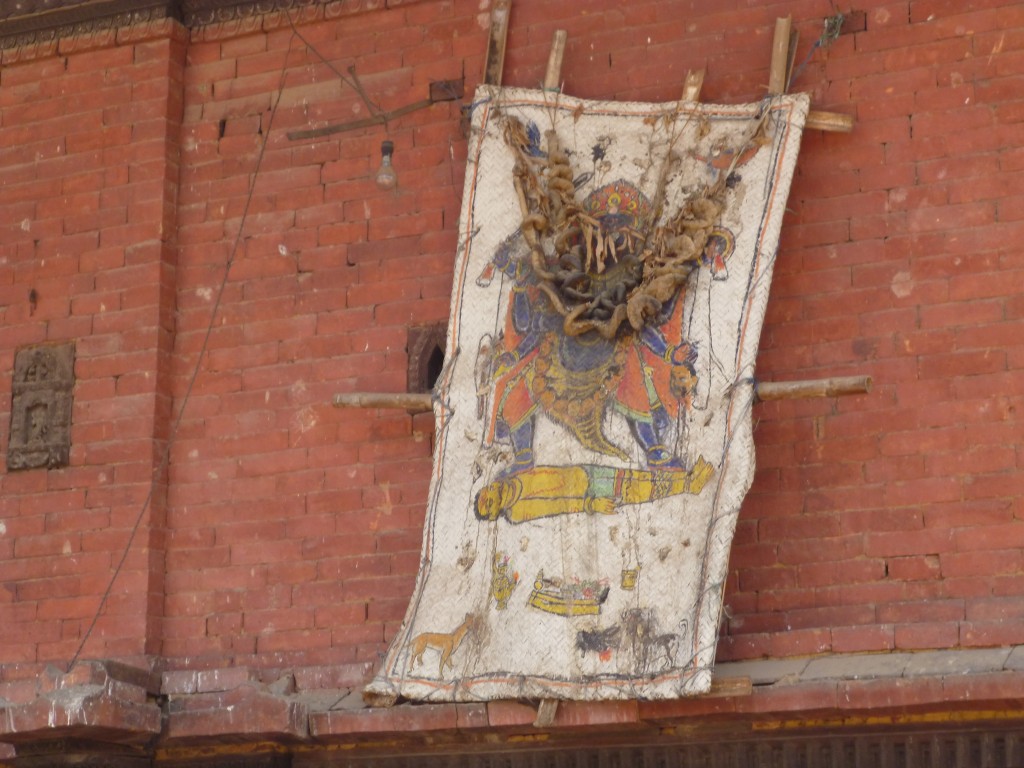
A custom that would definitely be frowned upon in the west is the practice of covering a baby in mustard oil and putting he, or she, out in the sun to darken the skin.
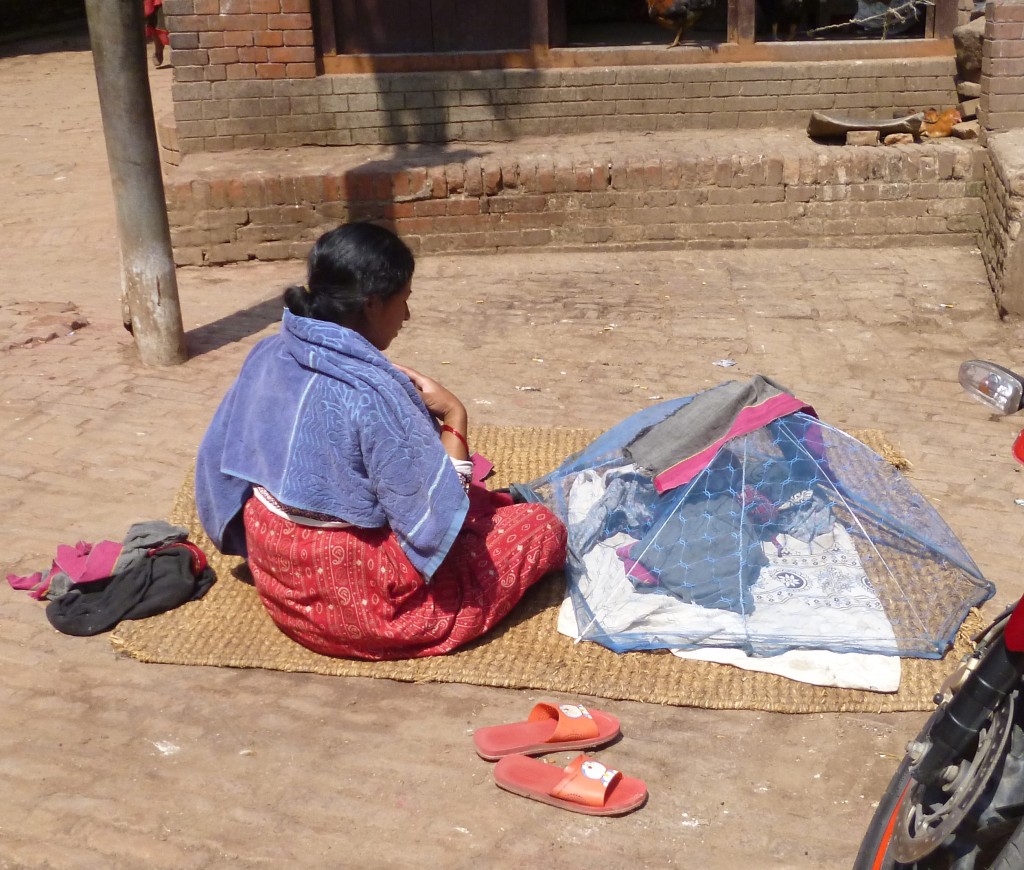
Apparently the more modern mothers now us baby oil instead of mustard oil!!
Whilst in Bhaktapur we visited a Thanka Painting school and ended up buying a Mandala, or Circle of Life painting. I have admired them for years in various parts of the Far East but watching them being painted finally convinced me I needed one!
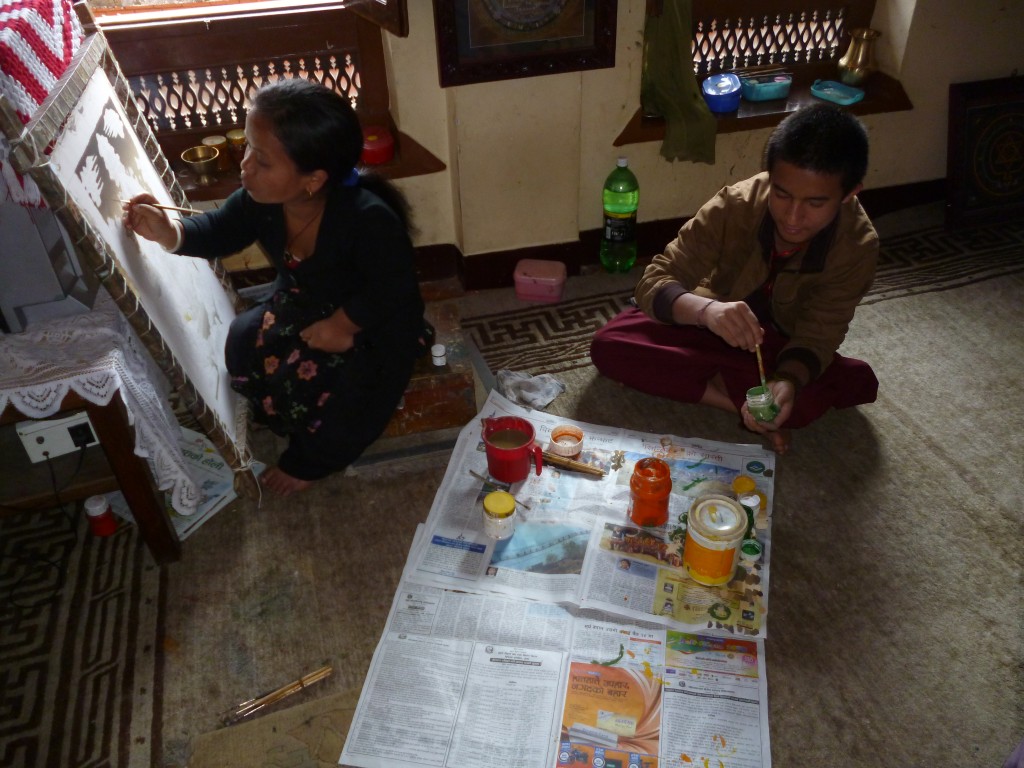
We finally left the wonders of this amazing town and headed for hilltop village of Nagarkot for a late lunch. The clouds made getting a good photo difficult but the views across the valleys were worth the journey, as was the lunch.
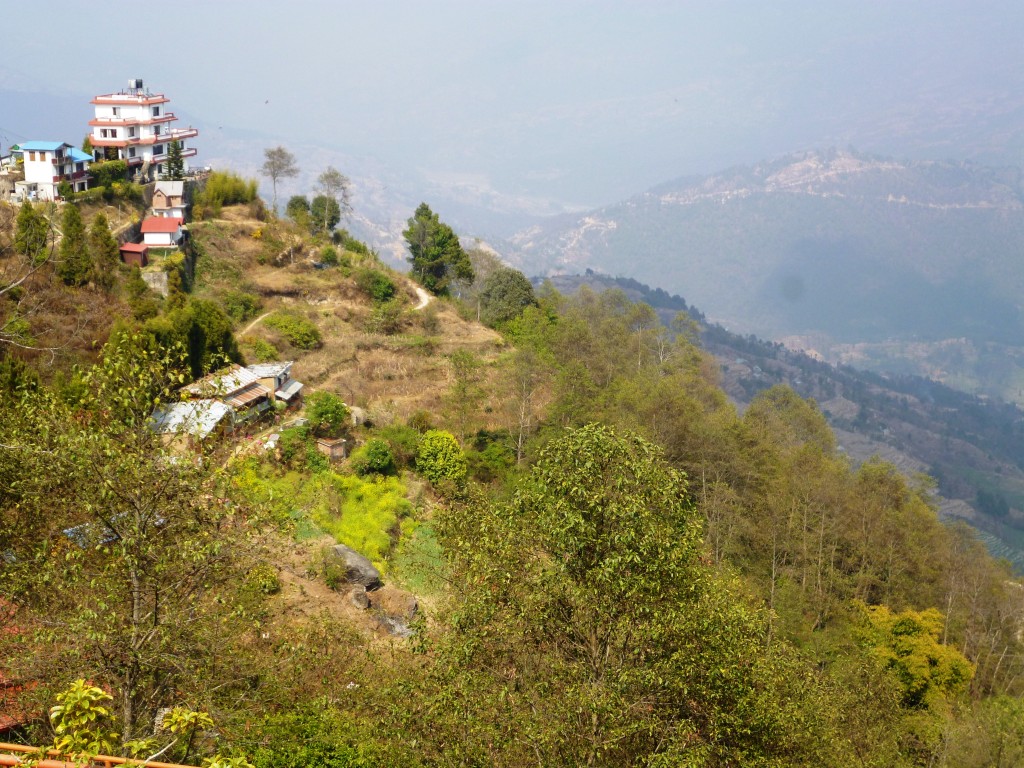
And that was another day over.
Our last day in Kathmandu was spent in the city area. We passed some terrace housing on our way the Hanuman Dhoka
situated on the Eastern side of
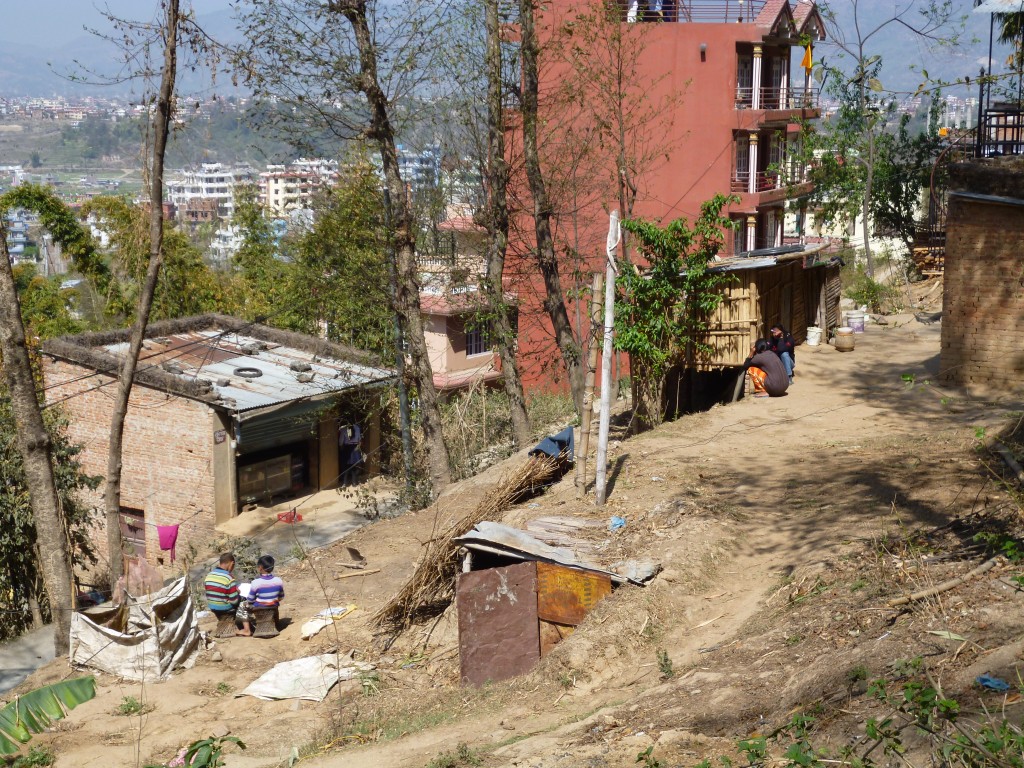
the Kathmandu Durbar square. This is the gateway to the Royal Palaces which house the Kathmandu museum.
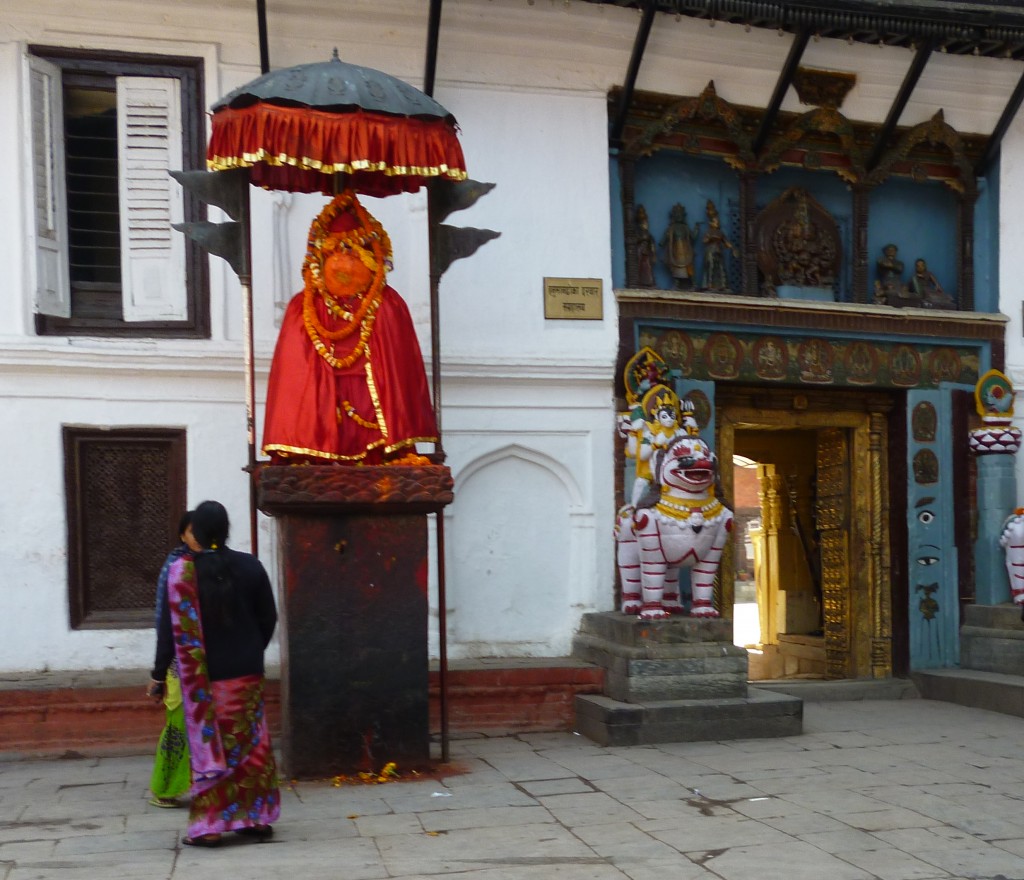
The square itself has the usual collection of temples and a large statue of Kala Bhairav or the Lord Shiva in his frightening aspect
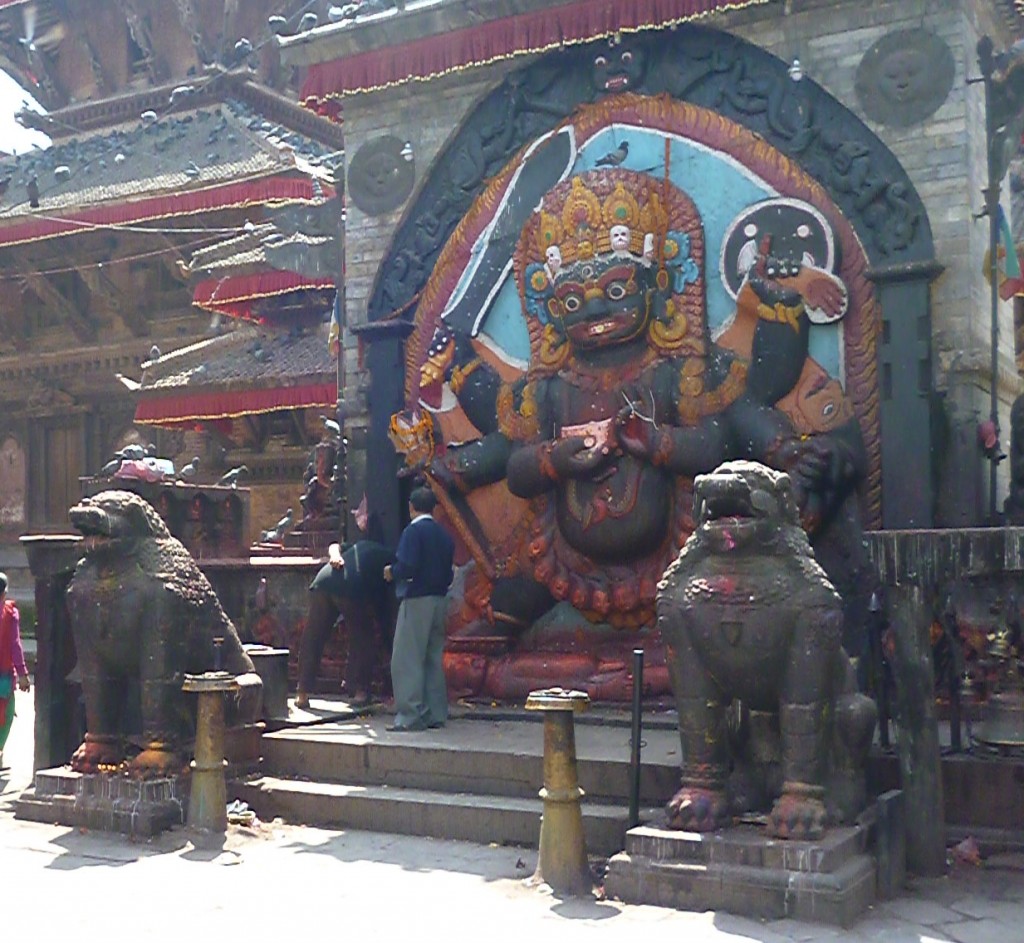
And thus ended the first phase of our holiday
Next morning we took the Simrik Airlines Beech 1900 flight to Pokhara.
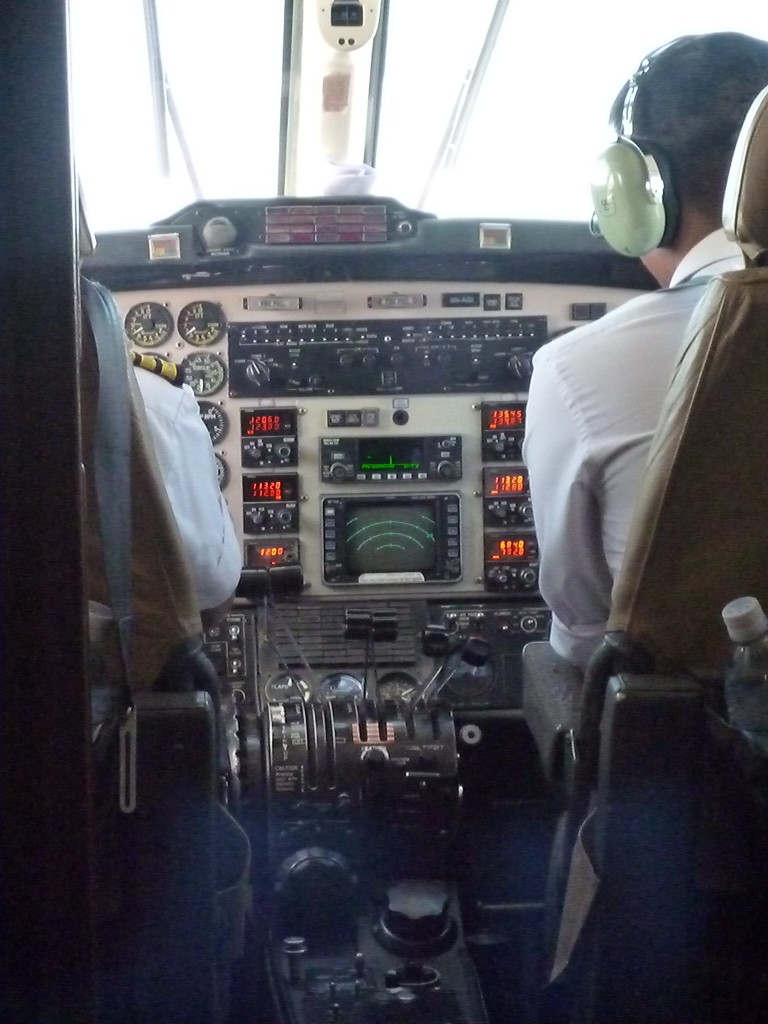
This is a half hour flight which can be a little bumpy at times, but one hardly notices it as there are some spectacular views out of the windows.
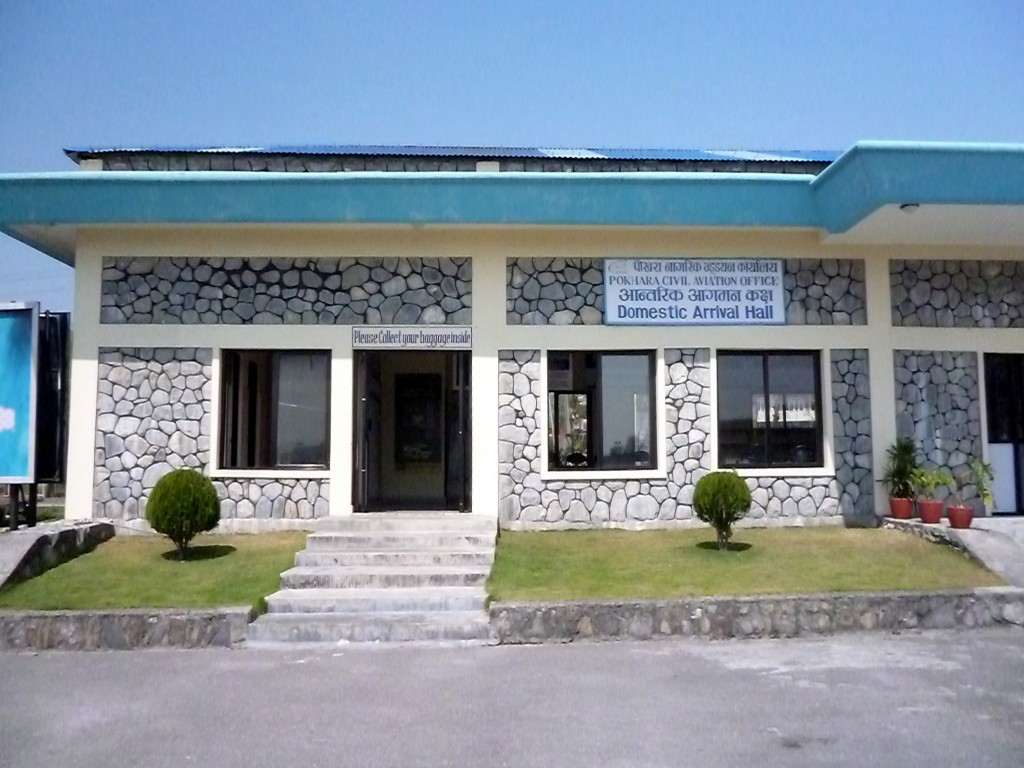
Having landed and collected our baggage we were met by our taxi man who would be our guide for this stage of the holiday.
We drove off to our hotel, or so we thought. Thirty five minutes later we arrived at a parking area alongside a couple of fairly shabby hotels. Josephine’s comment was, “what have you brought me to!!” However, it turned out to be the way to the Begnas Lake mooring point where our ferry was waiting to take us to the resort.
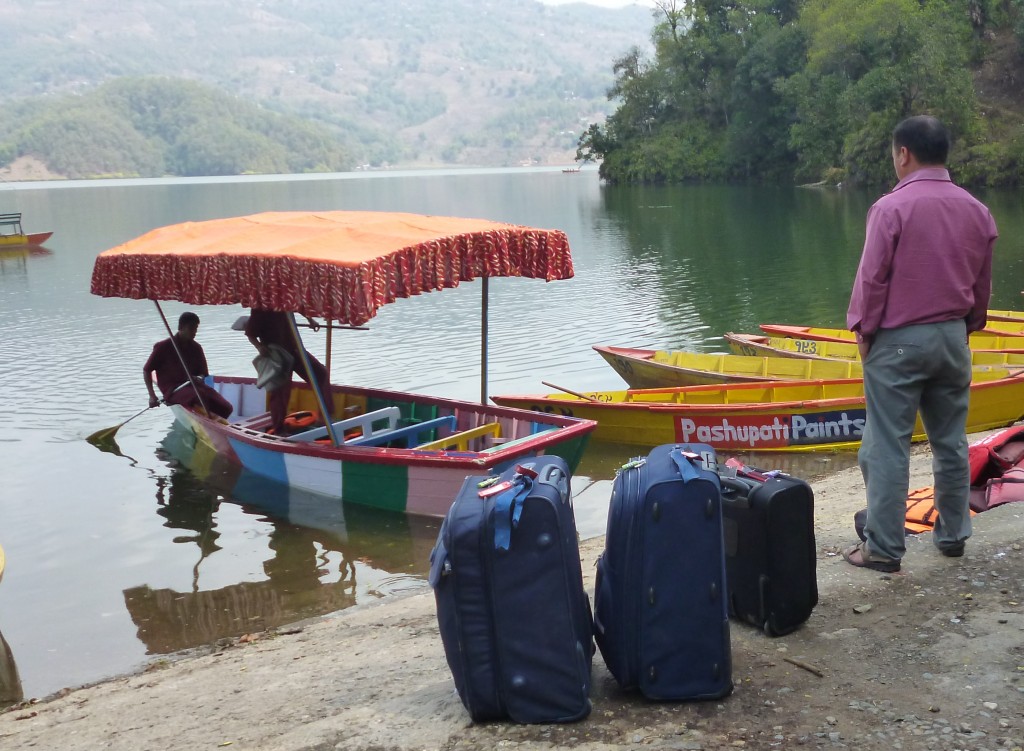
Twenty five minutes later we had our first view of the Begnas Lake Resort.
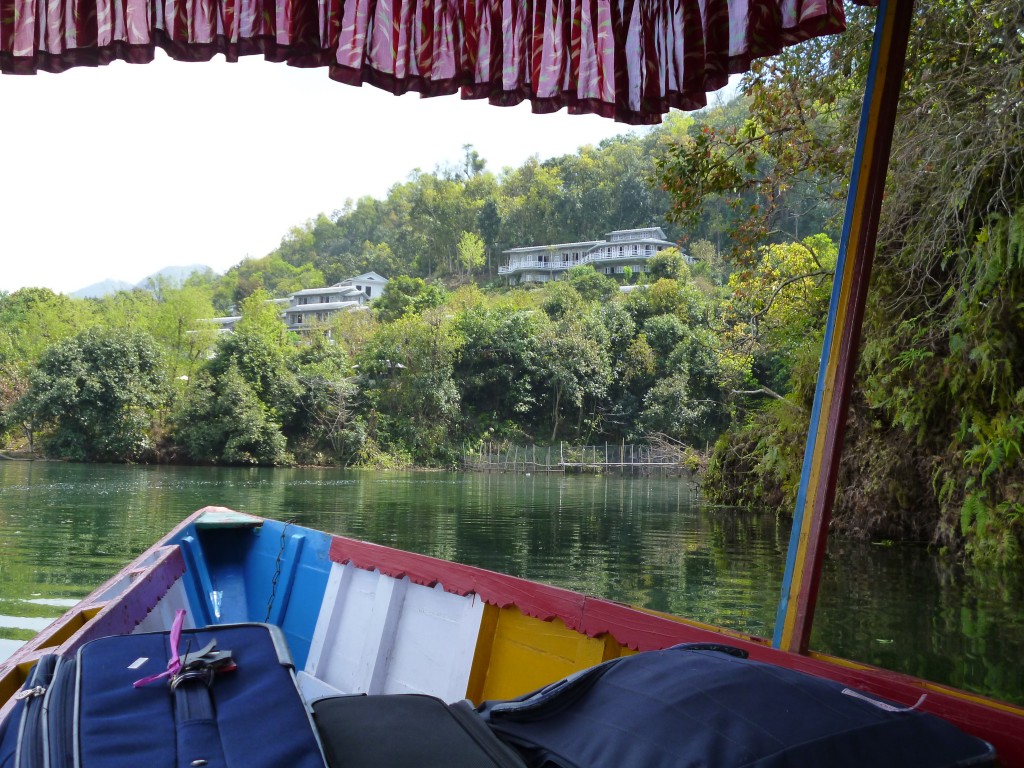
What nobody had told us and did not seem to appear anywhere on TripAdvisor is that there are 109 steps up from the landing stage to the Reception. Nor did it mention that from Reception to the road there are 274 steps up!! Do not let this deter you, the service and the food are beyond reproach.
Our room, number 33, had a large bath,
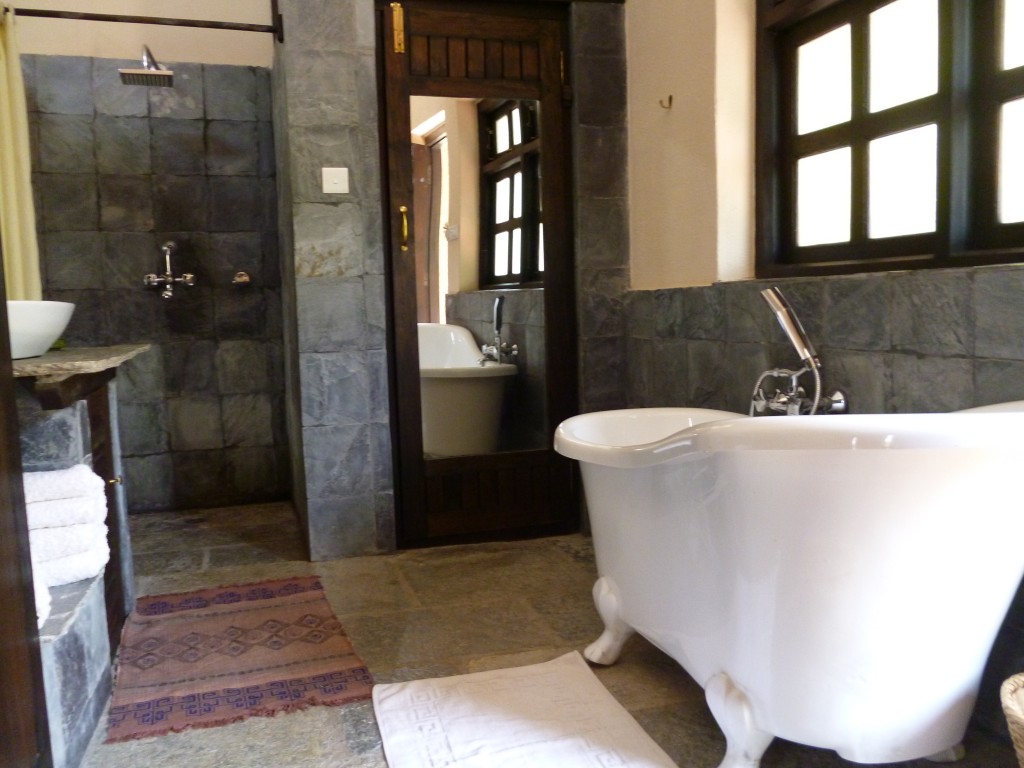
and a large bed
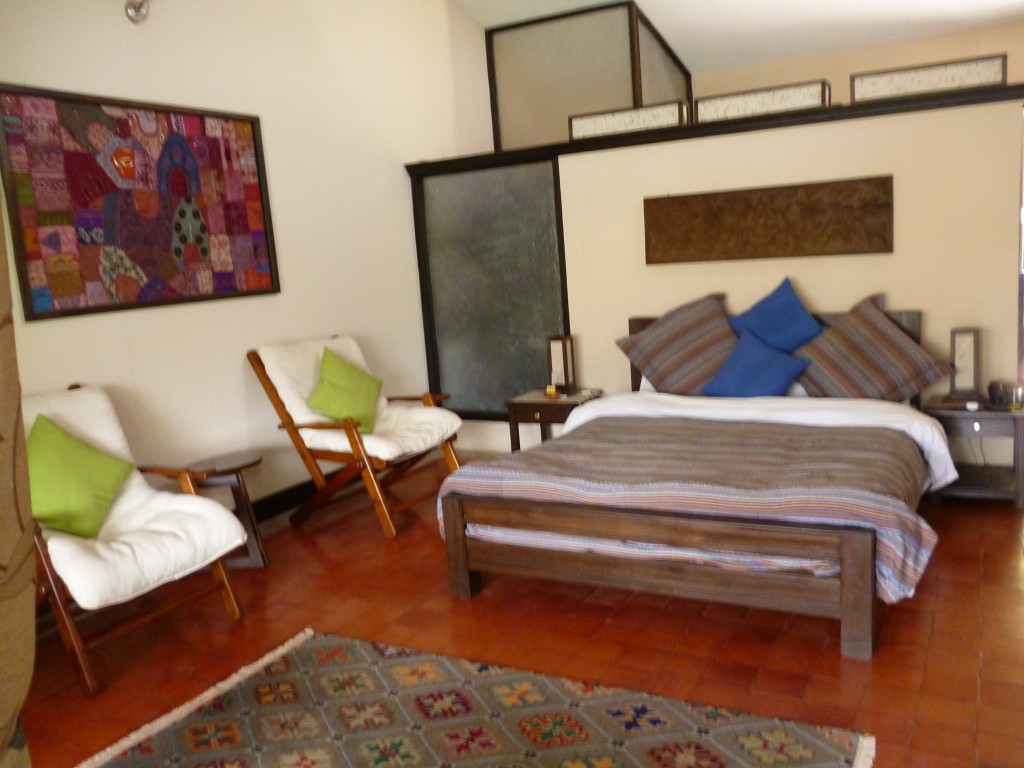
and not a bad view from the balcony
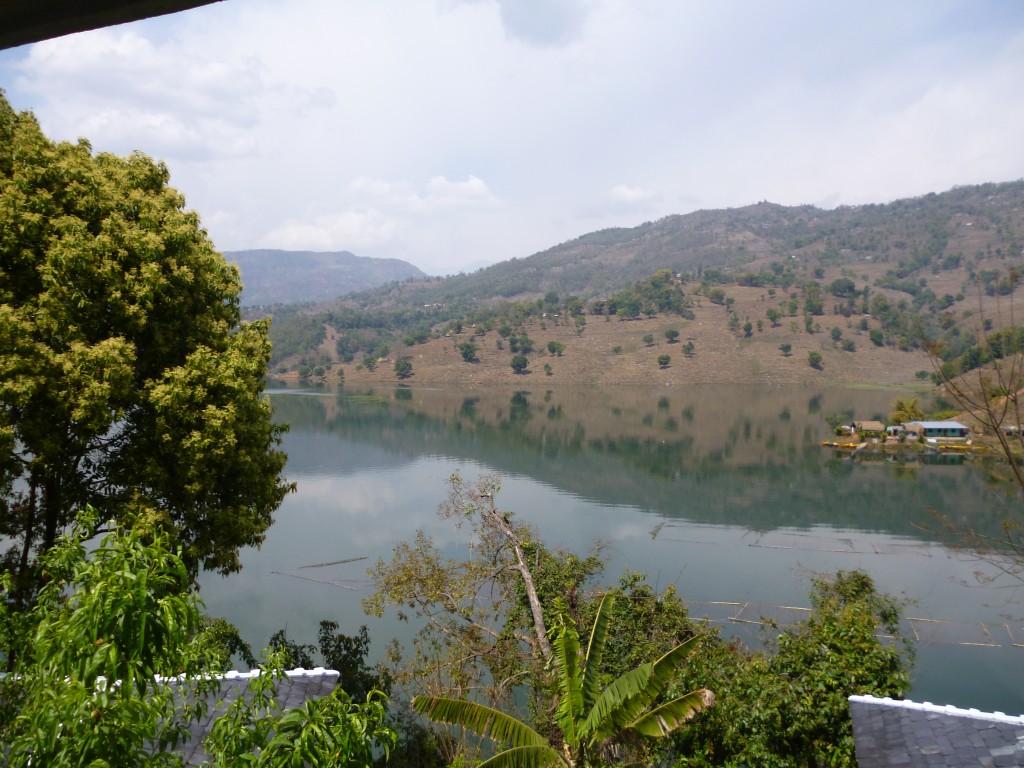
After settling in we thought we would try the steps up to the top road which turned out to take us thirty minutes with stops for breath at each bench, about 50 steps apart. By the time we left we had it down to 10 minutes!!
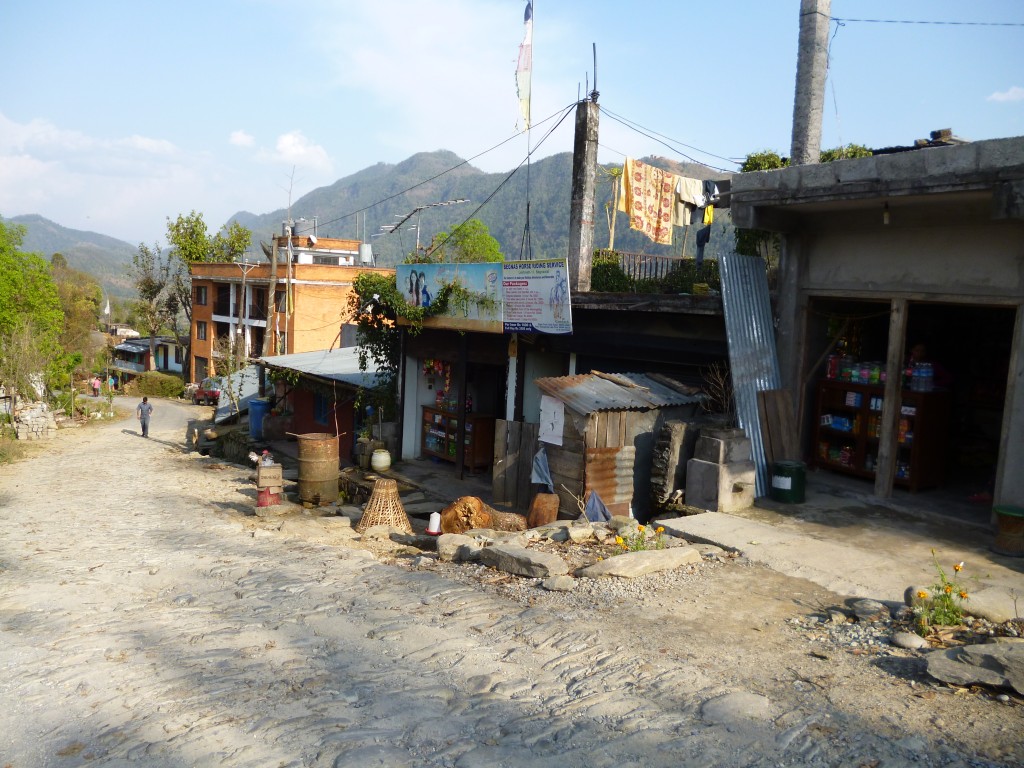
That was enough for one day so we repaired to the bar for a well earned beer.
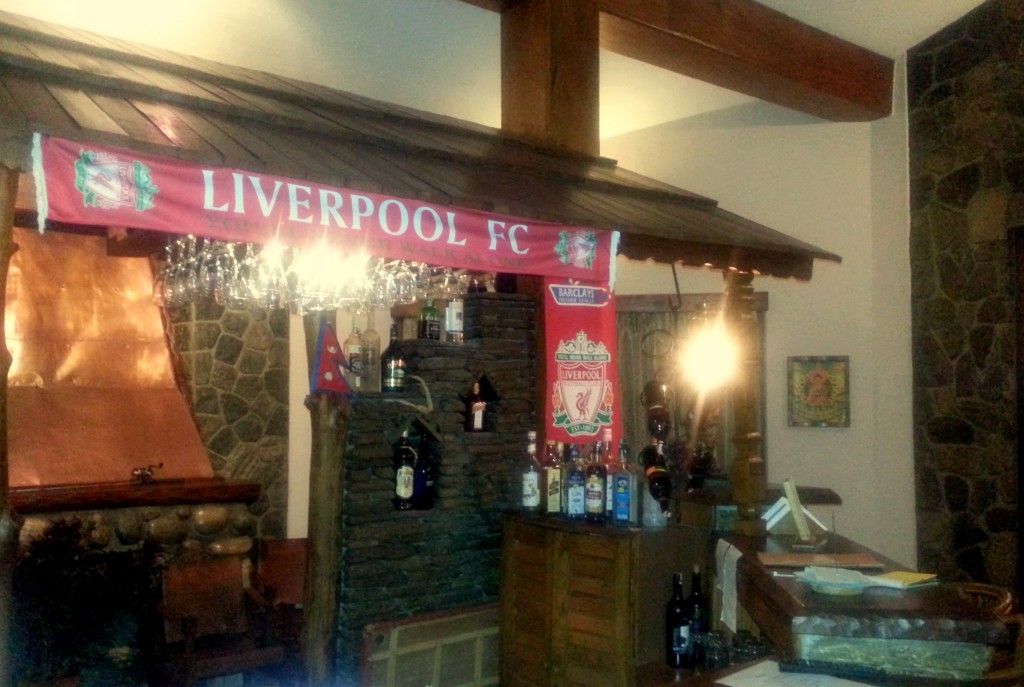
The bar boy turned out to be a Liverpool supporter – not that you’d ever guess!
Suitably exhausted we retired for the night.
Day seven was scheduled to take in the Gurkha museum and to go paragliding from Sarangkot and our ferry back to Begnas Bazaar and our taxi was booked for 7.30 am.
We visited a Hindu shrine on the way
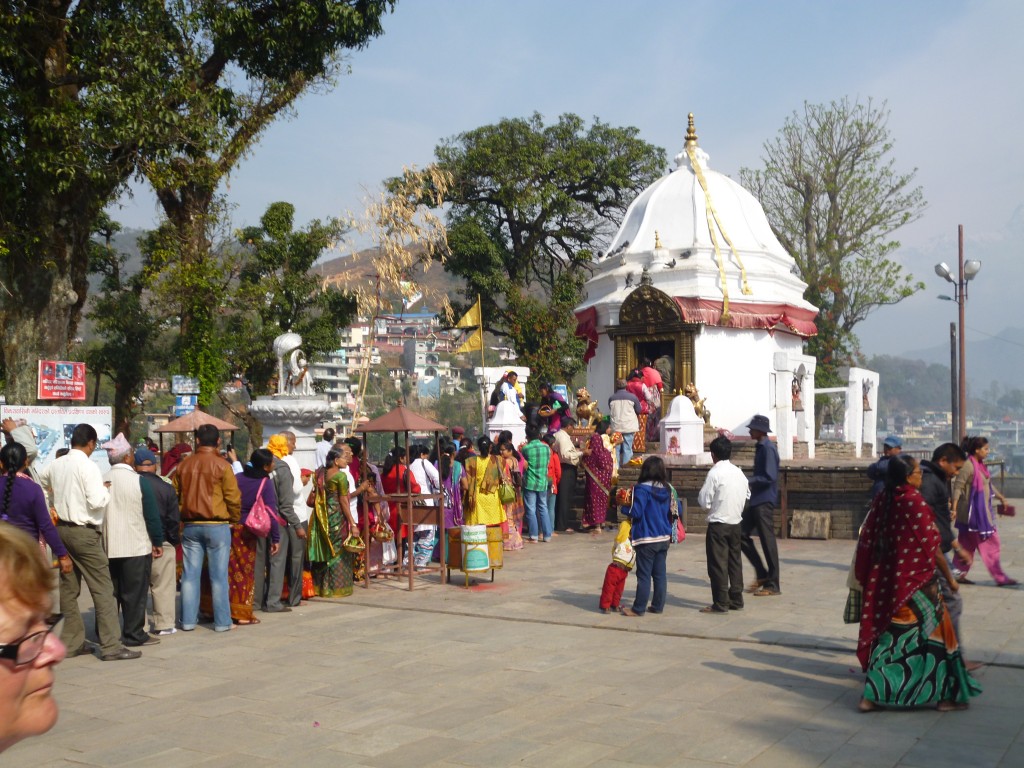
and then the land rover picked me up for the trip to Sarangkot. They did not mention a this point that the last 750 metres to the take off zone had to be made on foot. This was a near vertical climb which, even if I had had a camera with me, I would have been too knackered to use!!
My reply to the “flight marshal’s” query, ” Are you sure you are OK?” was ” I made it didn’t I!”
And so my pilot, connected me up and we took off
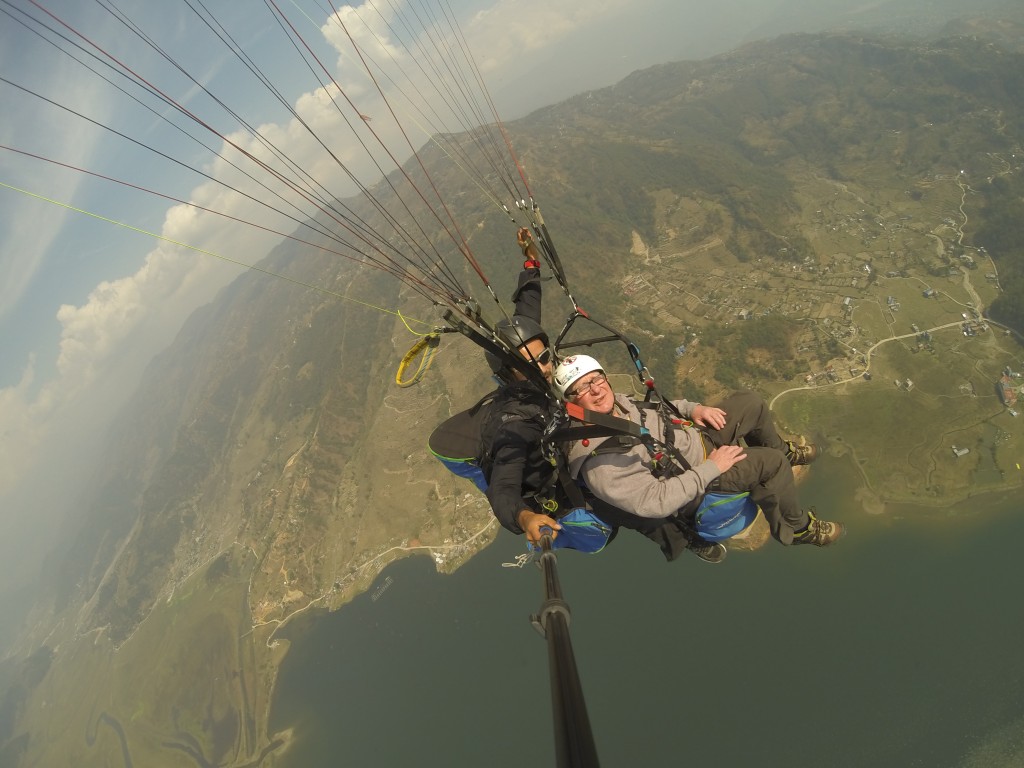
It was a pity that the weather was not better as we did not get the stunning views of the mountains as a backdrop but the climb up to 2400 metres into the cloud base was something else. As was the descent. As seen on the video which follows:
And we landed safely without incident.
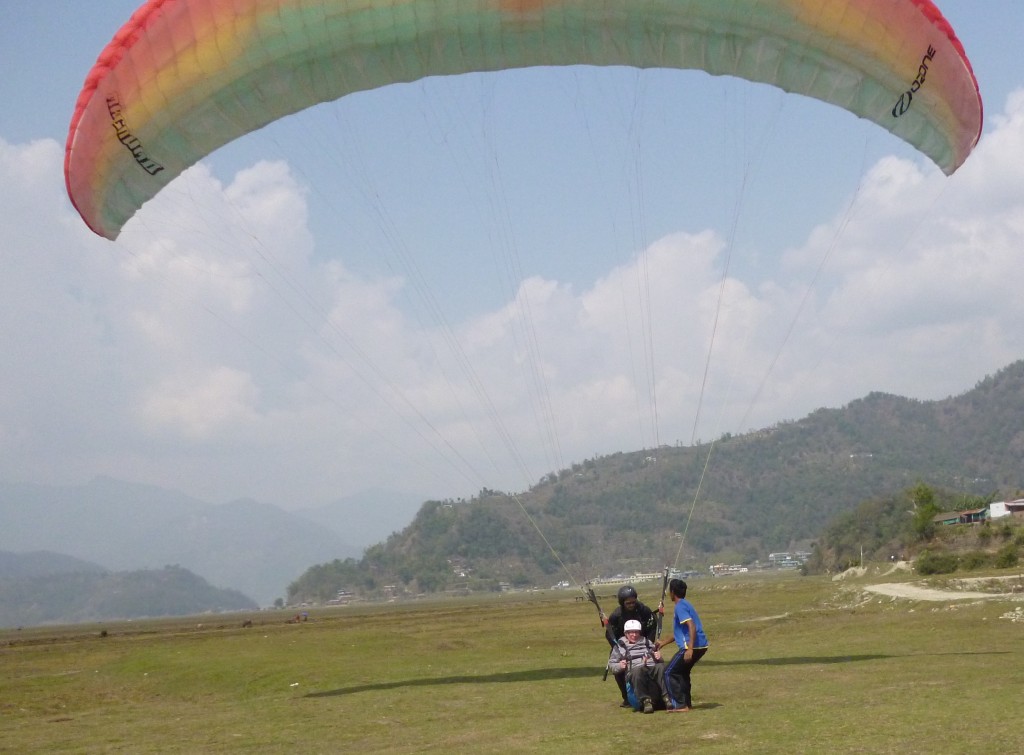
From here we drove back into Pokhara and visited the Gurkha Memorial Museum.
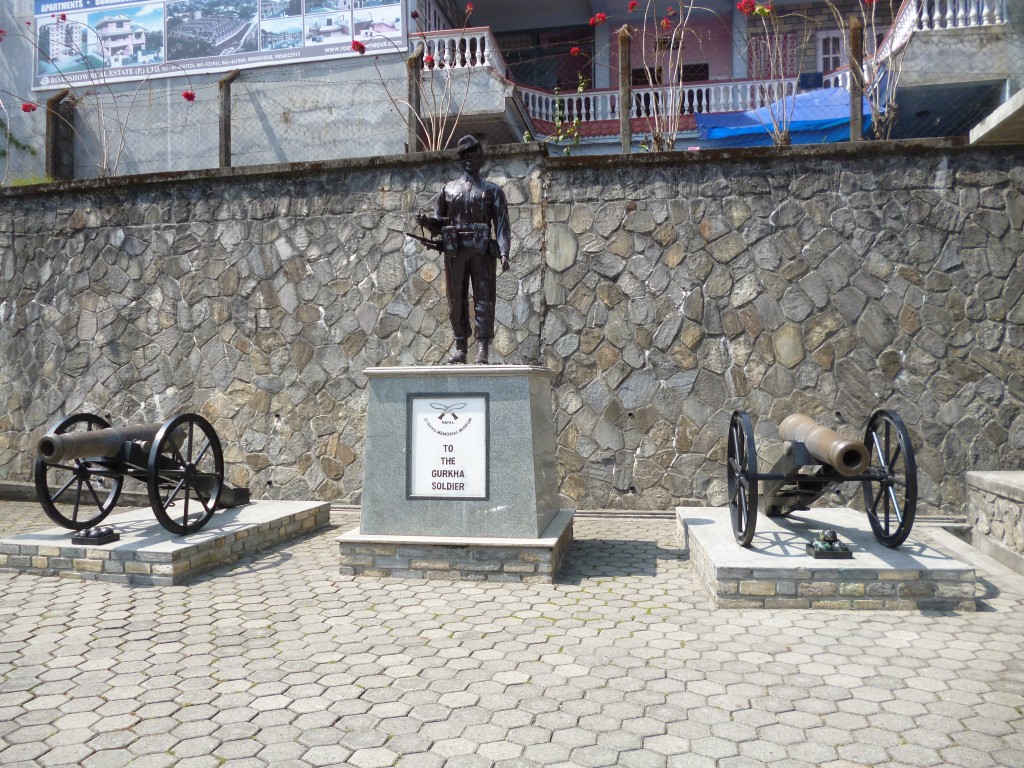
This is really worth a visit even if you do not have the interest that I have. The section on the Borneo campaign was particularly relevant to me.
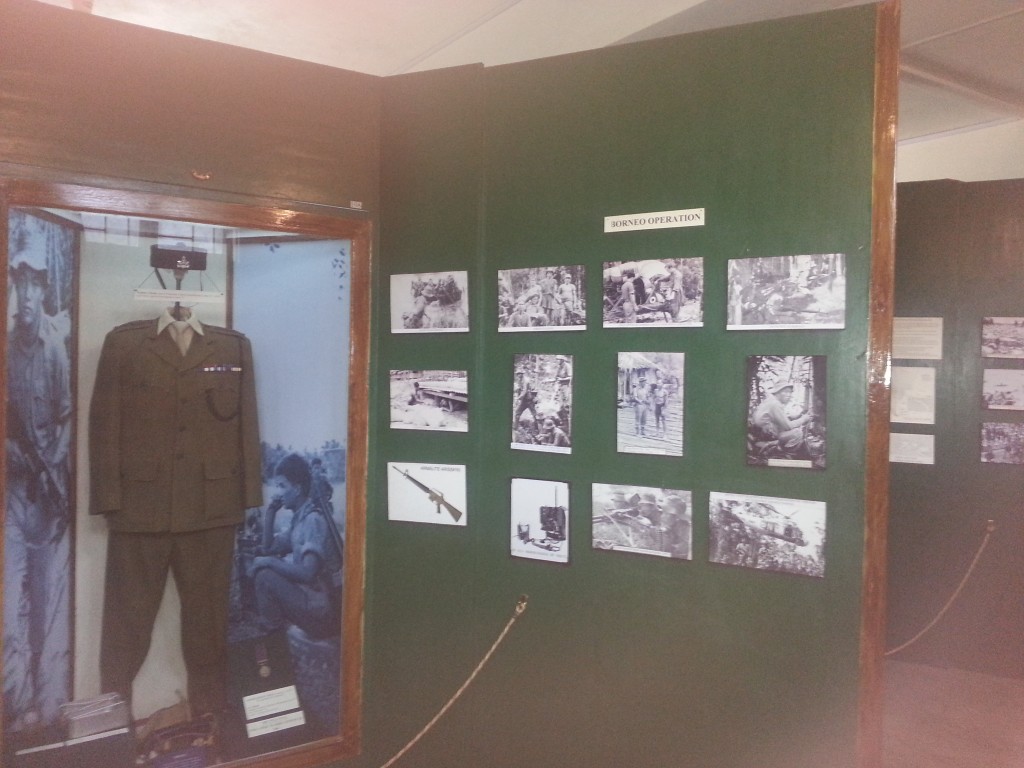
From here we went to a Nepalese fast food restaurant where the order of the day is a Thali Set, which is a combination plate for which one can get unlimited refills. Meal for three at less that £5.00!
And so back to the resort.
The next day we visited the world peace pagoda, see the first picture. As usual this involved climbing a long way up and even longer down.
We decided that, given the state of the approach road it would be better to walk down to where the tarmac started!
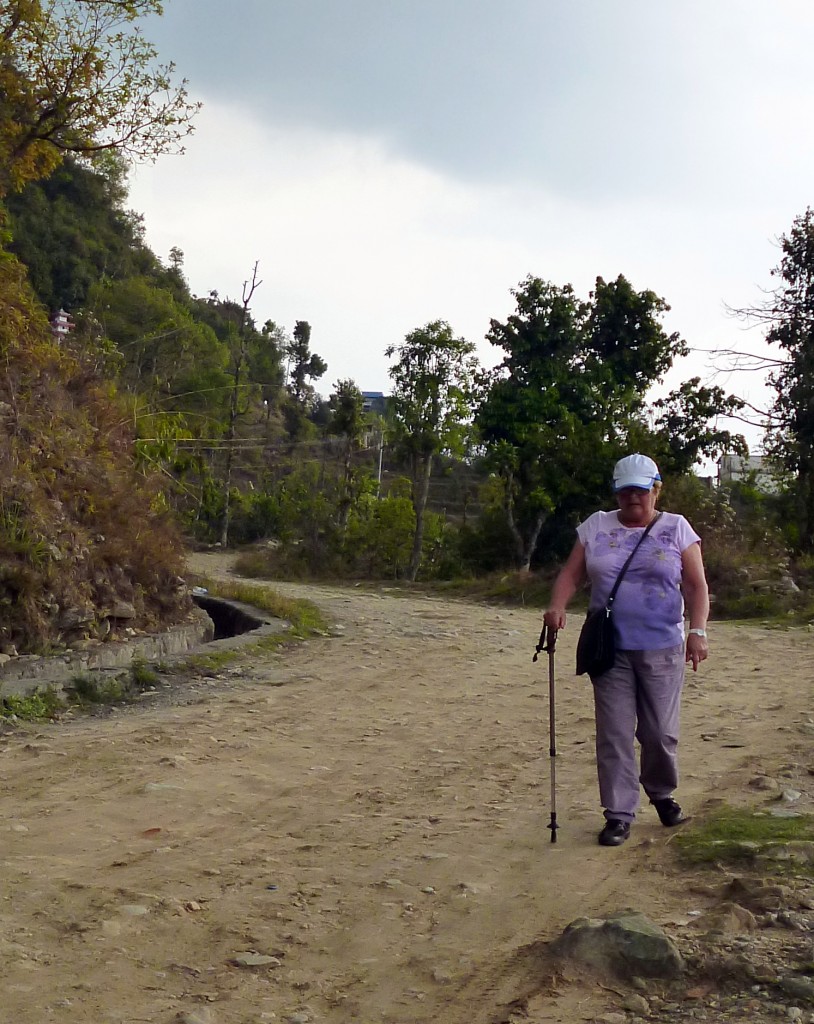
Having negotiated this we called in at a local supermarket and picked up a couple of bottles of wine and then had lunch at another establishment that served the Thali.
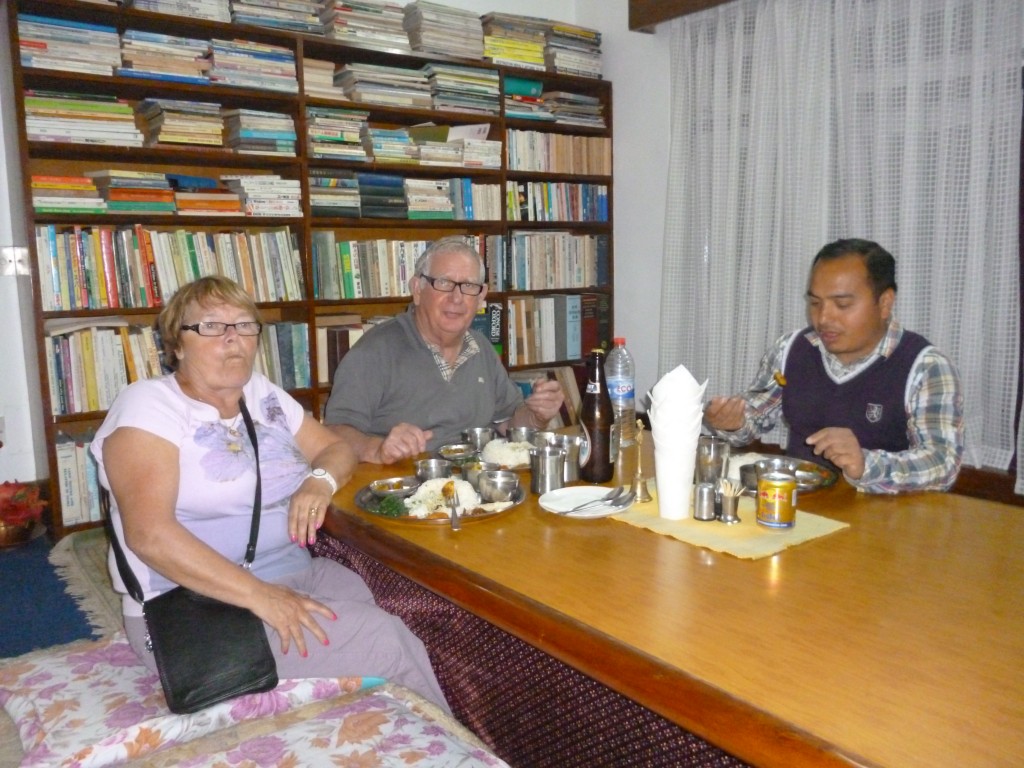
From here we went to the Devi Falls. As a tourist attraction I found it a little disconcerting to discover that the name is derived from the fact that a girl of this name drowned whilst swimming on one of the pools.
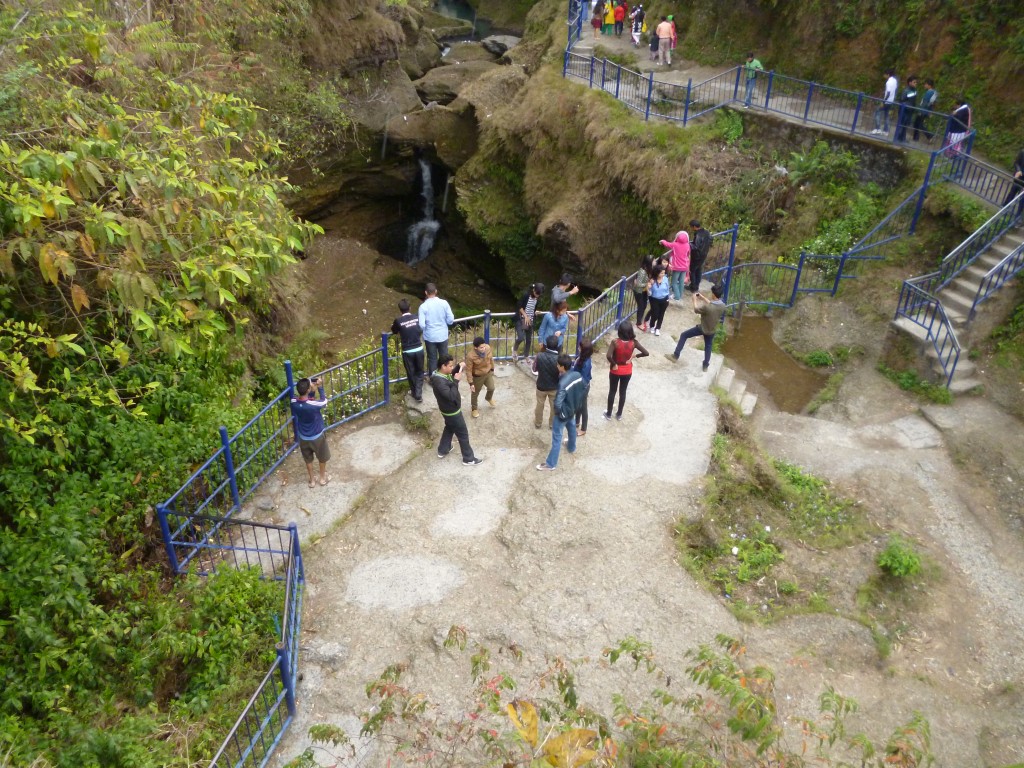
From here we visited the Tibetan refugee reservation where, amongst other enterprises, they have a carpet weaving workshop. Needless to say we now have a hand made runner on our landing.
The following day was planned for the paragliding experience and
The next day, sitting on the breakfast terrace, the morning view of Annapurna appearing out of the mist was an experience not to be missed.
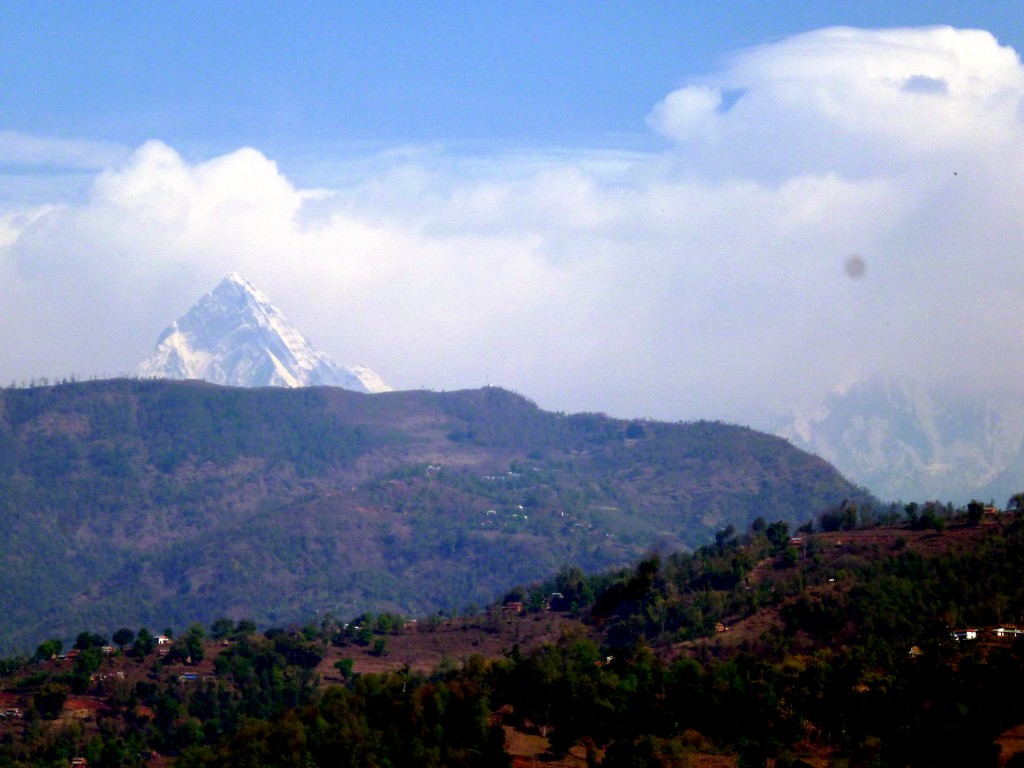
The view changes from minute to minute and occasionally one get the reflected view in the lake.
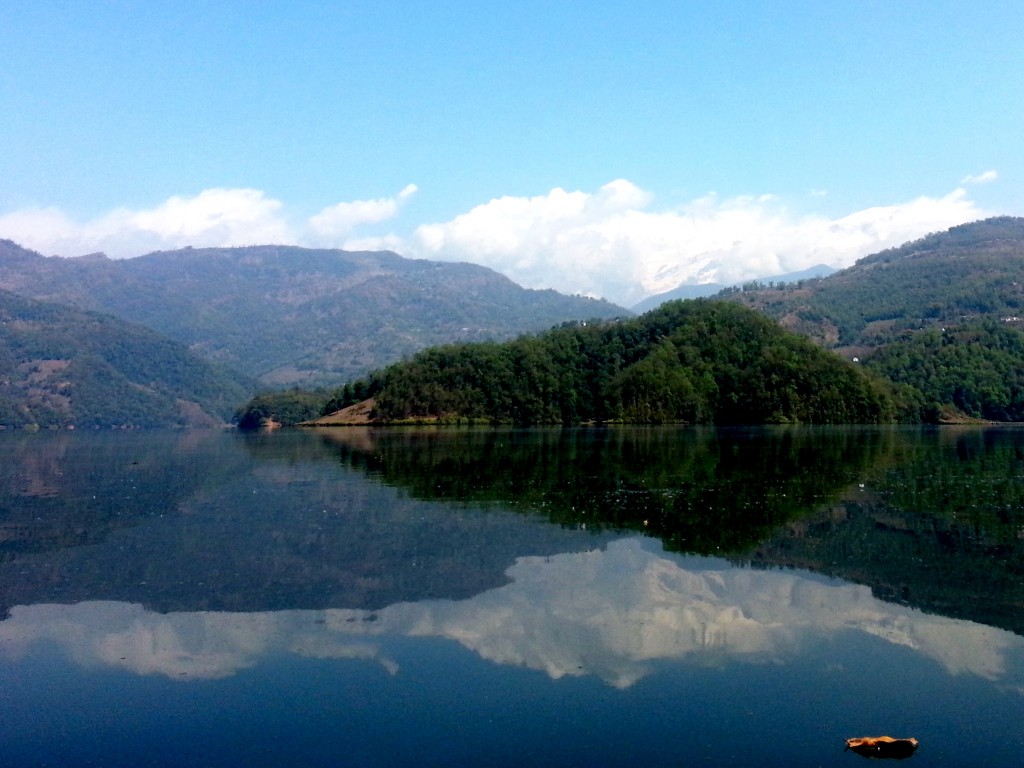
We then decided that we would spend the rest of our time at the resort walking in the surrounding area rather than bouncing around in a taxi. Also, although the weather was pleasant at around 23º – 25ºC the cloud base was too low to provide classic sunrise/sunset views from Sarangkot.
We had some stunning views and also some insight into local life.
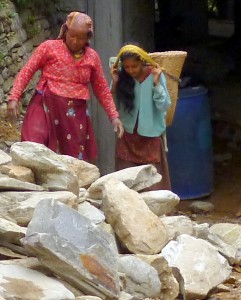
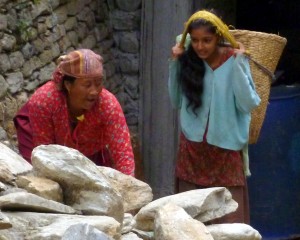
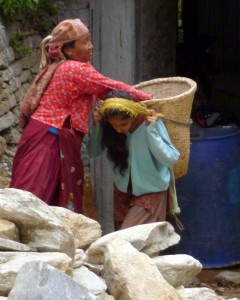
The three pictures here are of one of two girls who spent each day moving boulders about 60 yards to a building site. They carried about three boulders per load! The loader varied between this woman and a man. When not carrying their loads they could be seen chatting away on their mobile phones.
The came across all sorts of occupations as we went along:
road gangs.
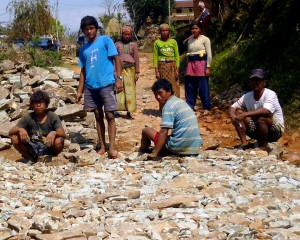
Shepherdesses
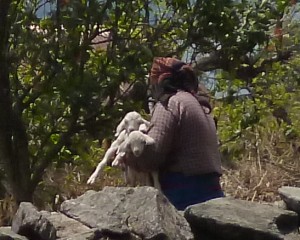
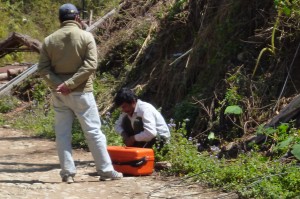
National Grid engineers
Sweetcorn de huskers
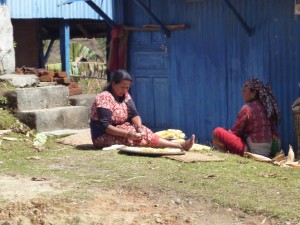
And of course there is the local Co-op
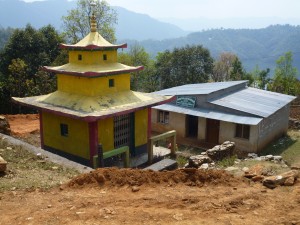
We also encountered some of the smaller local life
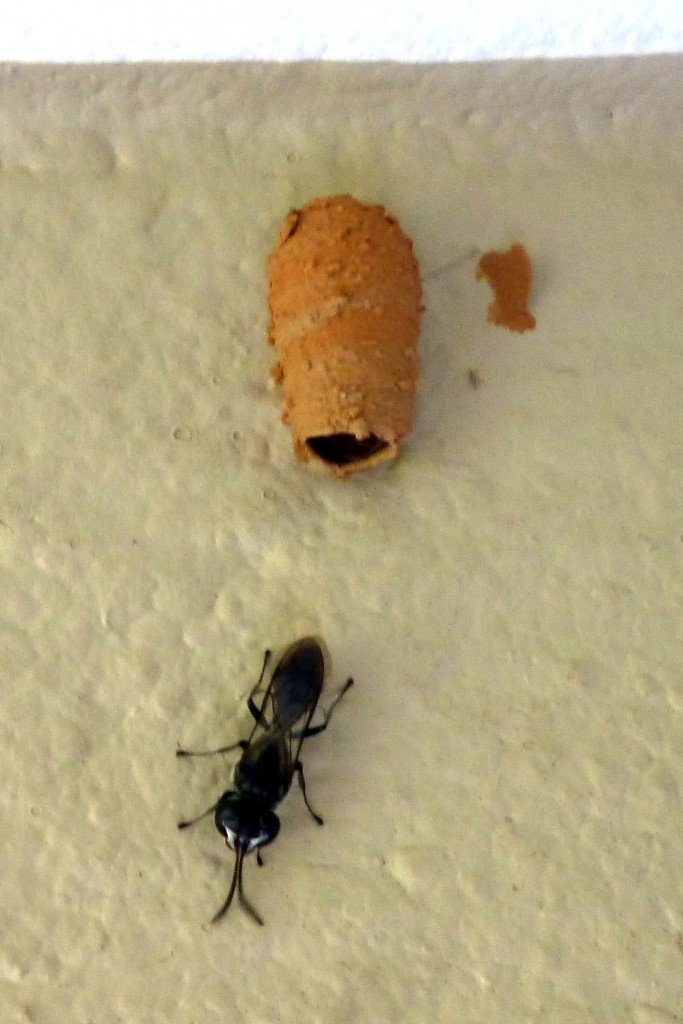
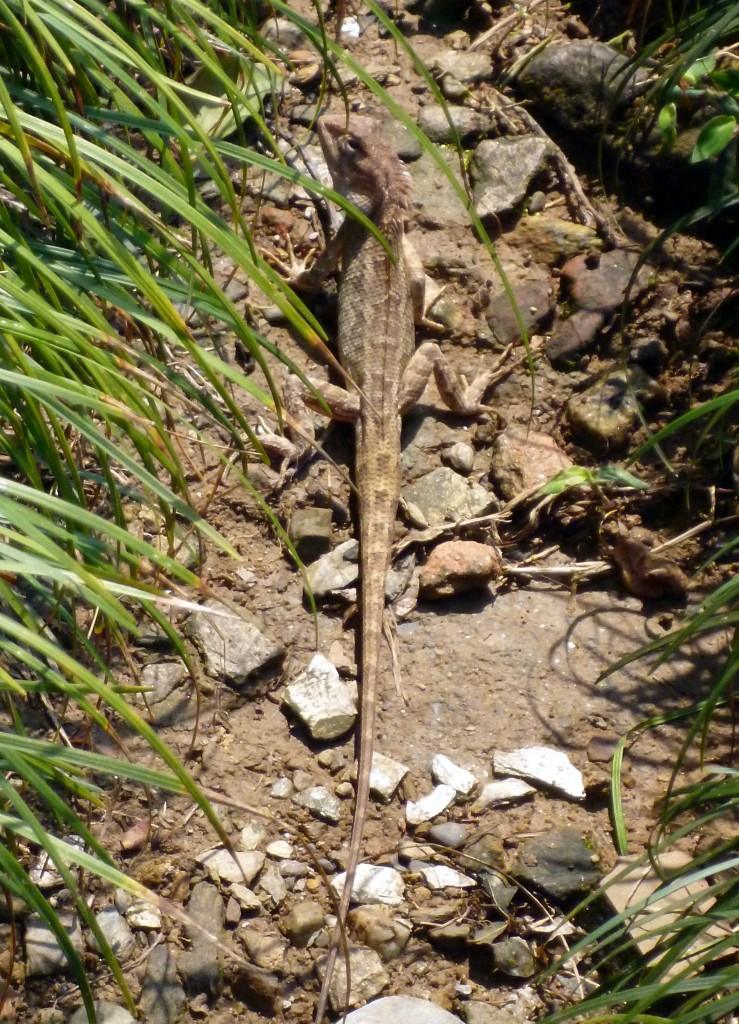
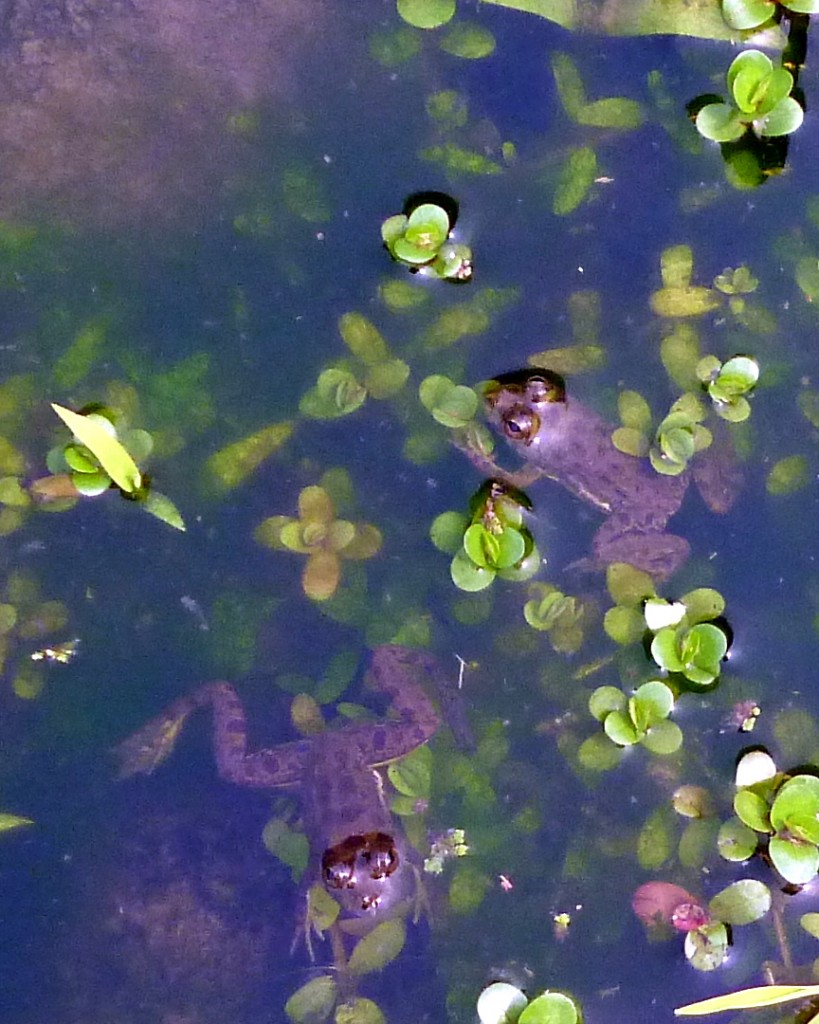
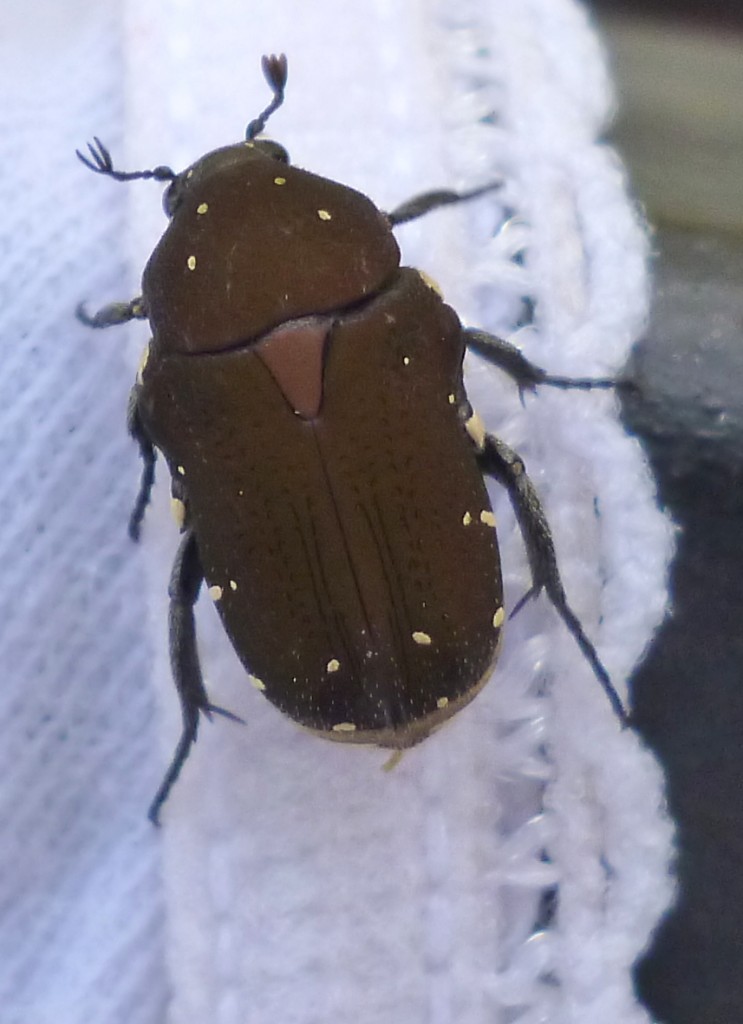
On our final day in Pokhara we took the paddle boat to the Tal Barahi Temple on Lake Fewa
It is great spot for just sitting and watching the world go by
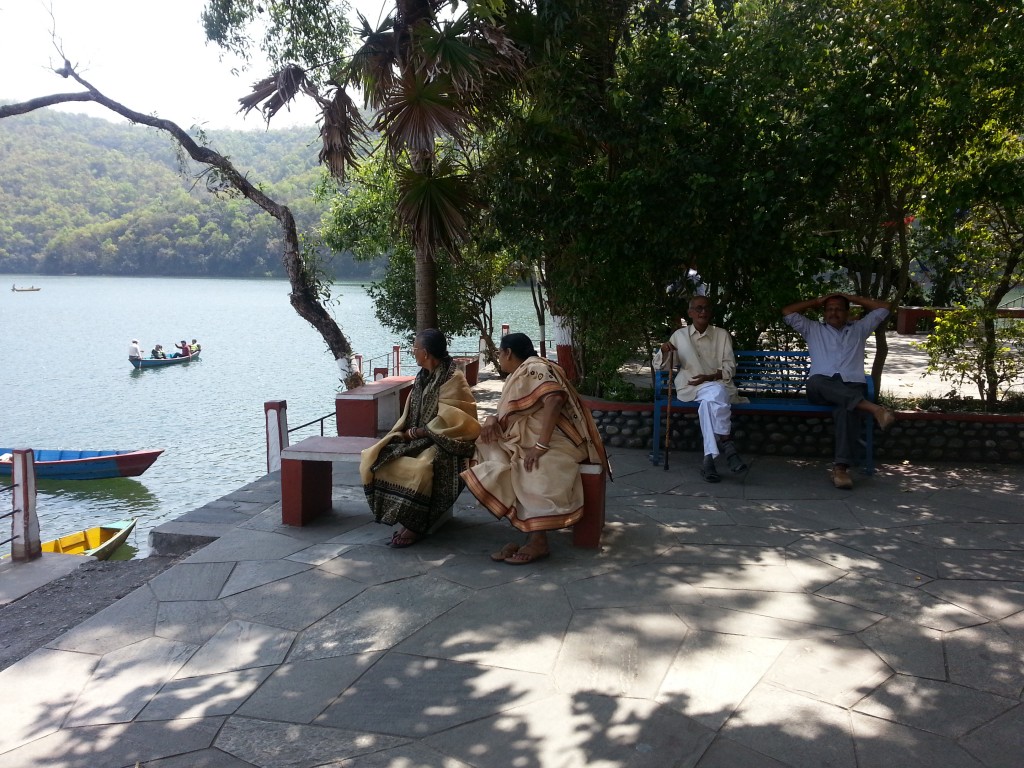
We flew back to Kathmandu to spend our last two days at the Gokrana Forest Resort, a complex a few kilometers out of the city and, as the name suggest, set a Forest reserve. there is a championship golf course attached but I did not take up the challenge.
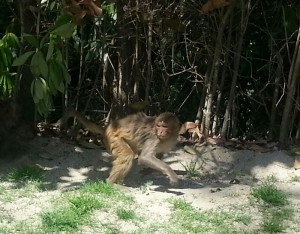
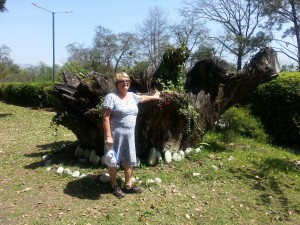
In fact we spent the two days lounging around in the grounds watching the monkeys and getting a massage prior to the flight home. It is an excellent hotel with helpful staff and wonderful food. The security guards carry catapults rather than guns!!
And so ended two great weeks of exotic sights, sounds and smells.
See the photos at Google + The header picture for the post is the 15th century carved wooden Peacock Window in Bhaktapur, known locally as the Mona Lisa of Nepal.
